Tyrosine Kinase
- IGFBR(1)
- Bcr-Abl(66)
- Ack1(2)
- Axl(6)
- ALK(54)
- BMX Kinase(3)
- Broad Spectrum Protein Kinase Inhibitor(10)
- c-FMS(35)
- c-Kit(56)
- c-MET(83)
- c-RET(0)
- CSF-1R(3)
- DDR1/DDR2 Receptor(1)
- EGFR(232)
- EphB4(1)
- FAK(33)
- FGFR(91)
- FLT3(85)
- HER2(12)
- IGF1R(31)
- Insulin Receptor(44)
- IRAK(27)
- ITK(10)
- Lck(1)
- LRRK2(22)
- PDGFR(94)
- PTKs/RTKs(3)
- Pyk2(6)
- ROR(38)
- Spleen Tyrosine Kinase (Syk)(32)
- Src(95)
- Tie-2 (3)
- Trk(39)
- VEGFR(174)
- Kinase(0)
- Discoidin Domain Receptor(15)
- DYRK(29)
- Ephrin Receptor(12)
- ROS(14)
- RET(28)
- TAM Receptor(28)
Products for Tyrosine Kinase
- Cat.No. Product Name Information
-
GC41183
α-Carotene
all-trans-α-Carotene
α-Carotene is a precursor of vitamin A that has been found in various fruits and vegetables.

-
GC38006
β-Hydroxyisovalerylshikonin
Beta-hydroxyisovalerylshikonin is a natural product isolated from Lithospermium radix, acts as a potent inhibitor of protein tyrosine kinases (PTK), with IC50s of 0.7μM and 1μM for EGFR and v-Src receptor, respectively. Beta-hydroxyisovalerylshikonin is effective against a wide variety of tumor cell lines, and most efficiently induces cell-death in NCI-H522 and DMS114 cells.
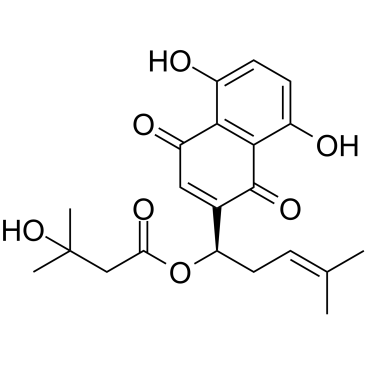
-
GC41653
(±)16(17)-DiHDPA
(±)16(17)-DiHDPA is produced from cytochrome P450 epoxygenase action on docosahexaenoic acid.

-
GC41656
(±)2-(14,15-Epoxyeicosatrienoyl) Glycerol
(±)214,15EG
2-Arachidonoyl glycerol (2-AG) is an endogenous central cannabinoid (CB1) receptor agonist that is present at relatively high levels in the central nervous system.
-
GC13944
(5Z)-7-Oxozeaenol
FR148083,L-783,279,LL-Z 1640-2
TAK1 mitogen-activated protein kinase kinase kinase (MAPKKK) inhibitor
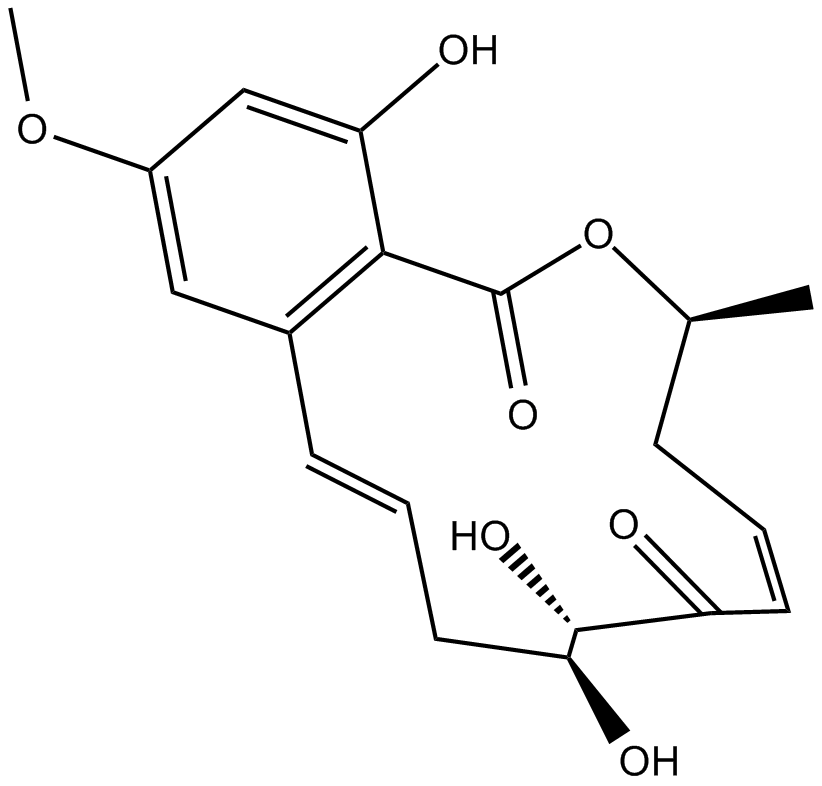
-
GC17800
(E)-FeCP-oxindole
VEGFR-2 inhibitor
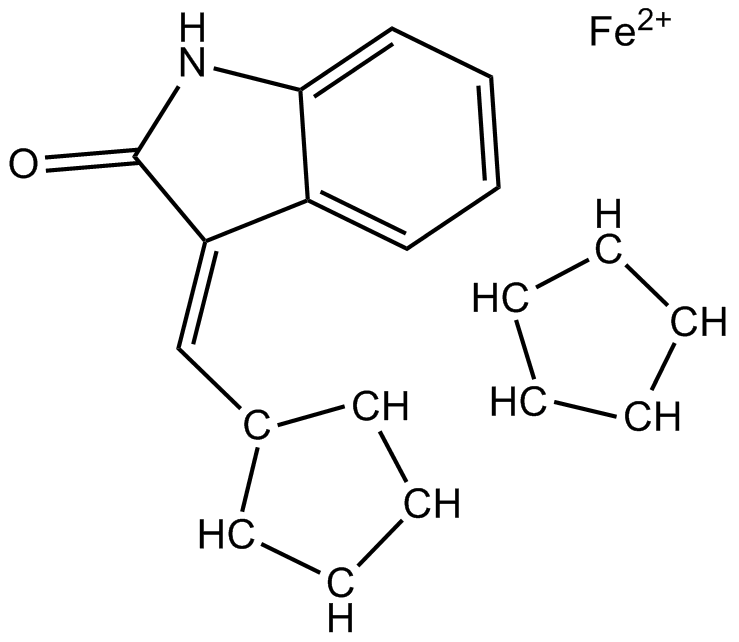
-
GC61807
(E/Z)-AG490
(E/Z)-AG490 ((E/Z)-Tyrphostin AG490) is a racemic compound of (E)-AG490 and (Z)-AG490 isomers. (E)-AG490 is a tyrosine kinase inhibitor that inhibits EGFR, Stat-3 and JAK2/3.

-
GC25000
(E/Z)-BCI
BCI, NSC 150117
(E/Z)-BCI (BCI, NSC 150117) is an inhibitor of dual specific phosphatase 1/6 (DUSP1/DUSP6) and mitogen-activated protein kinase with EC50 of 13.3 μM and 8.0 μM for DUSP6 and DUSP1 in cells, respectively. (E)-BCI induces apoptosis via generation of reactive oxygen species (ROS) and activation of intrinsic mitochondrial pathway in H1299 lung cancer cells.
-
GC63864
(E/Z)-Zotiraciclib hydrochloride
(E/Z)-TG02 hydrochloride; (E/Z)-SB1317 hydrochloride
(E/Z)-Zotiraciclib ((E/Z)-TG02) hydrochloride is a potent CDK2, JAK2, and FLT3 inhibitor.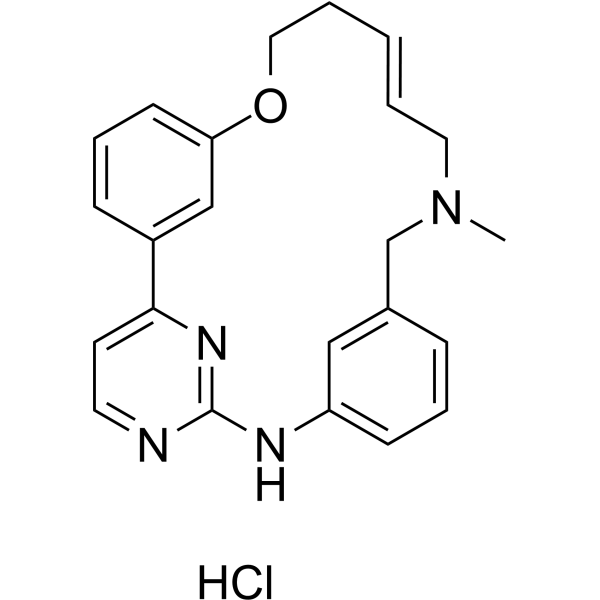
-
GC14729
(R)-Crizotinib
PF 2341066
A c-MET and ALK receptor tyrosine kinase inhibitor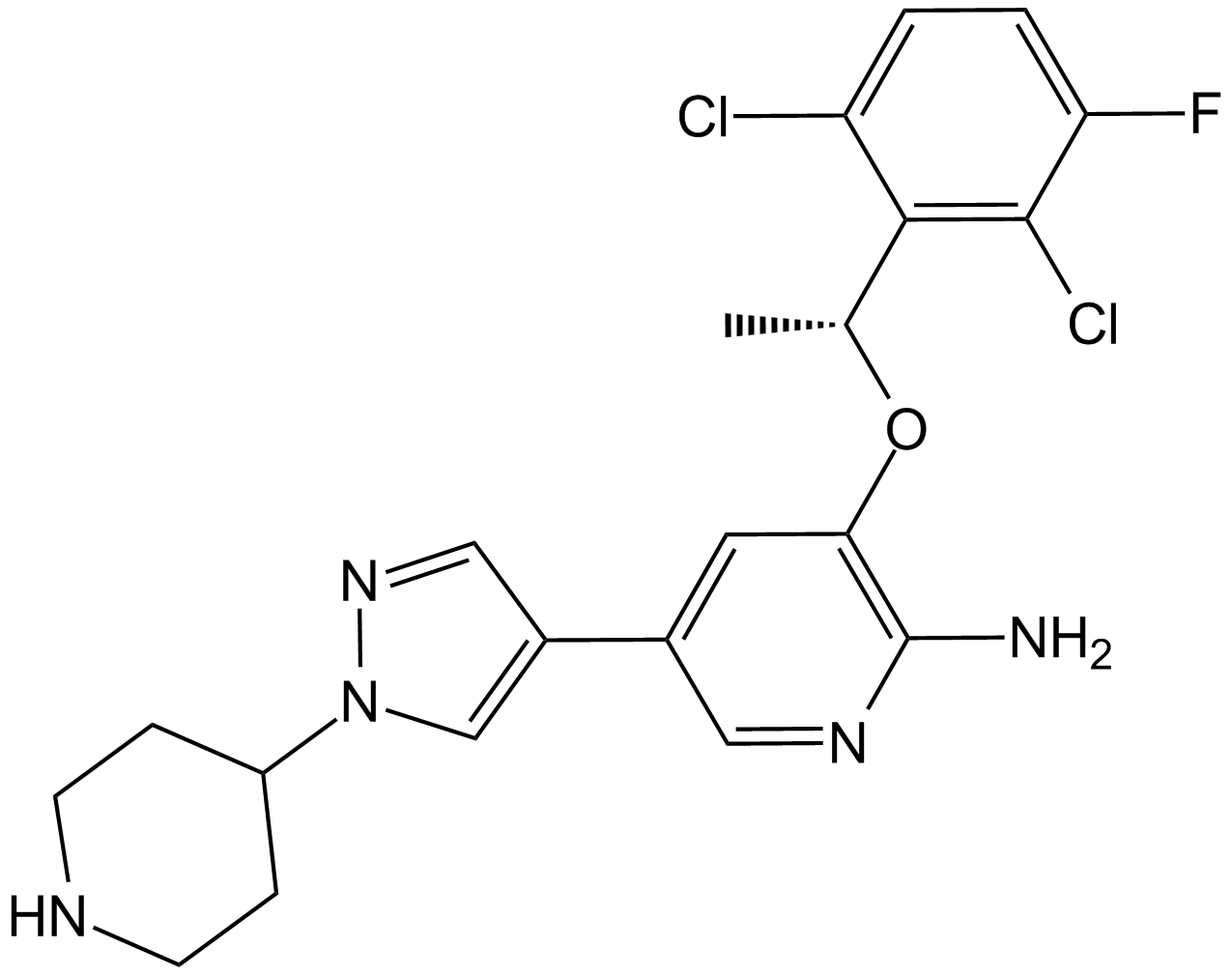
-
GC19012
(R)-GNE-140
?A TRK kinase (TKI) inhibitor
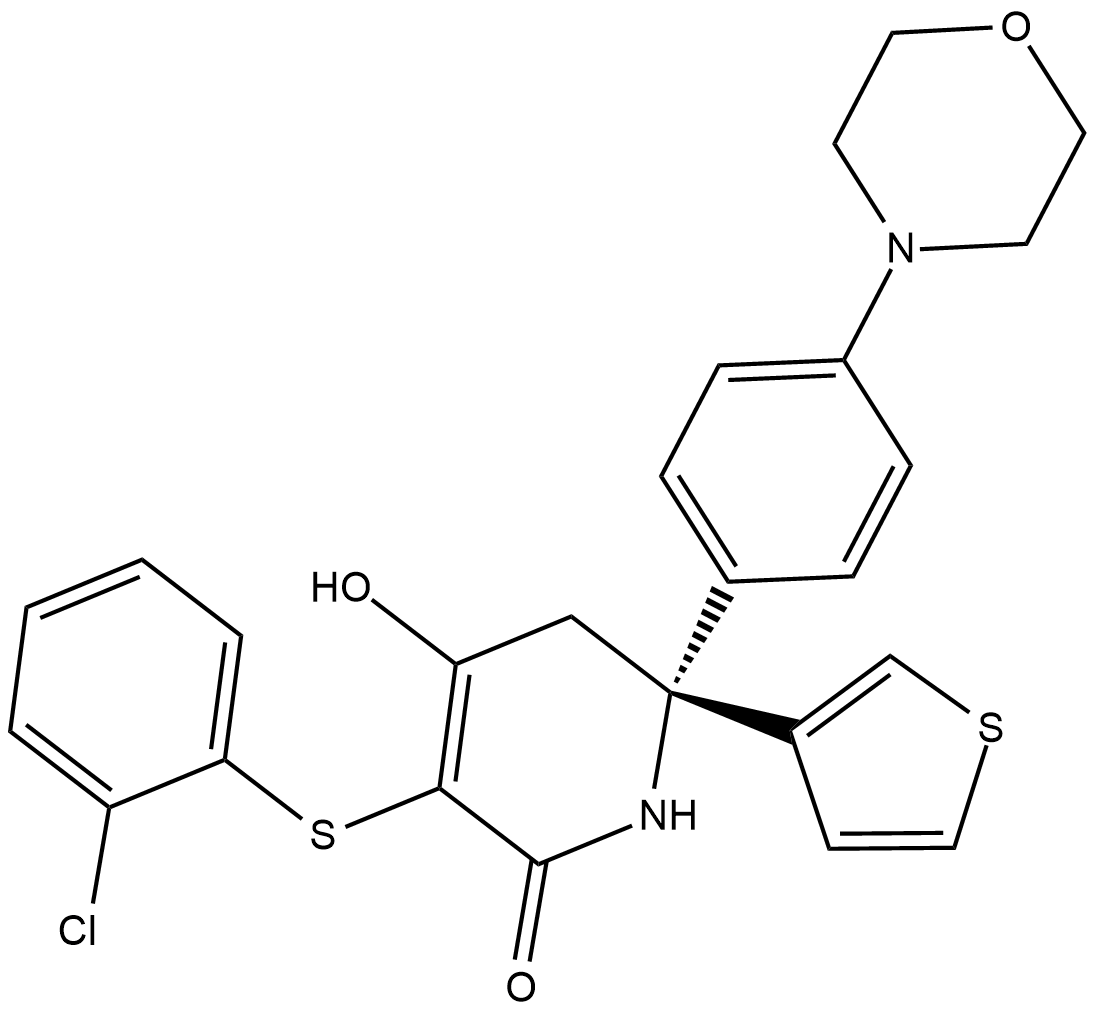
-
GC13136
(S)-Crizotinib
Potent MTH1 inhibitor
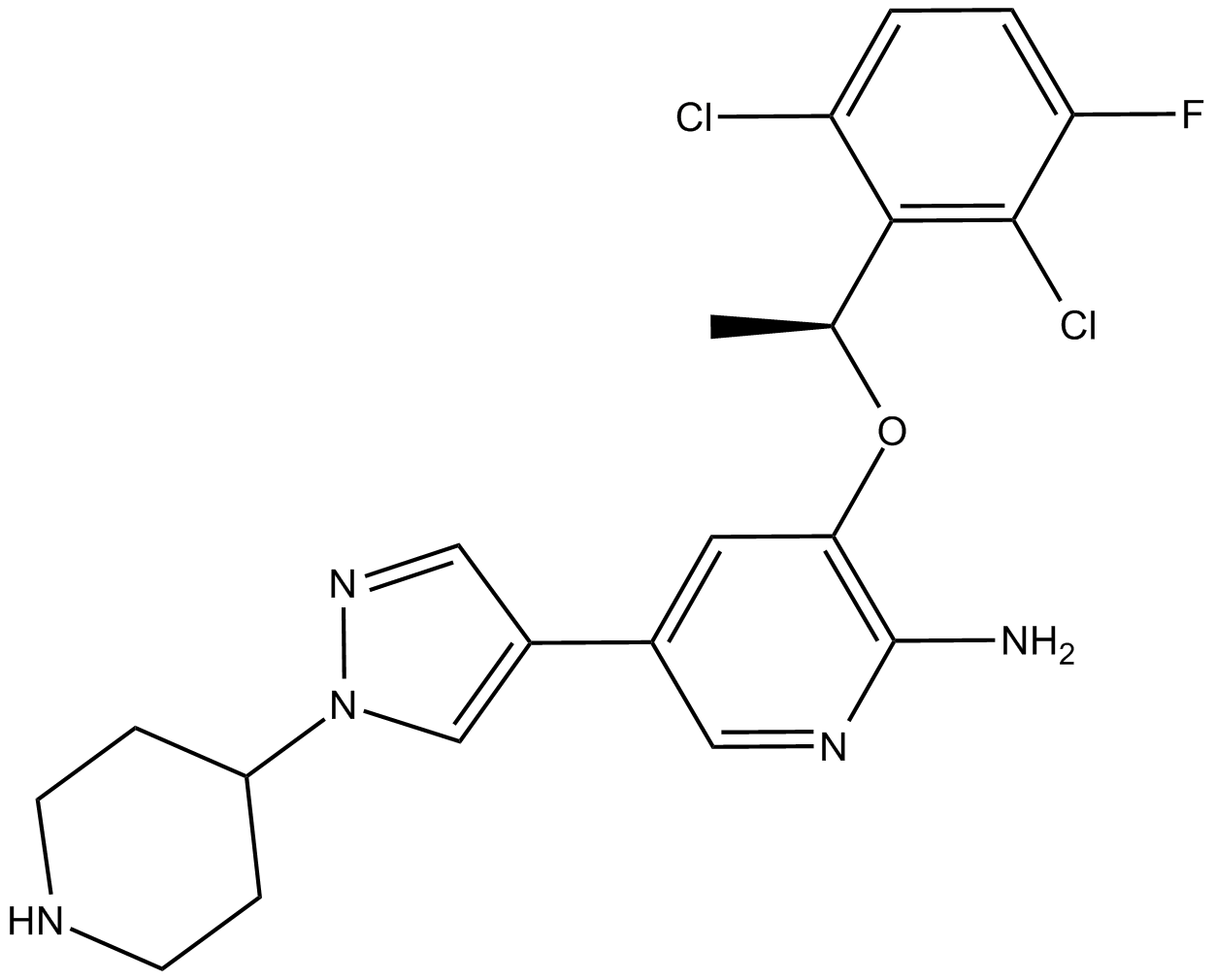
-
GC63797
(S)-Sunvozertinib
(S)-DZD9008
(S)-Sunvozertinib ((S)-DZD9008), the S-enantiomer of Sunvozertinib, shows inhibitory activity against EGFR exon 20 NPH and ASV insertions, EGFR L858R/T790M mutation and Her2 exon20 YVMA insertion (IC50=51.2 nM, 51.9 nM, 1 nM, and 21.2 nM, respectively). (S)-Sunvozertinib also inhibits BTK.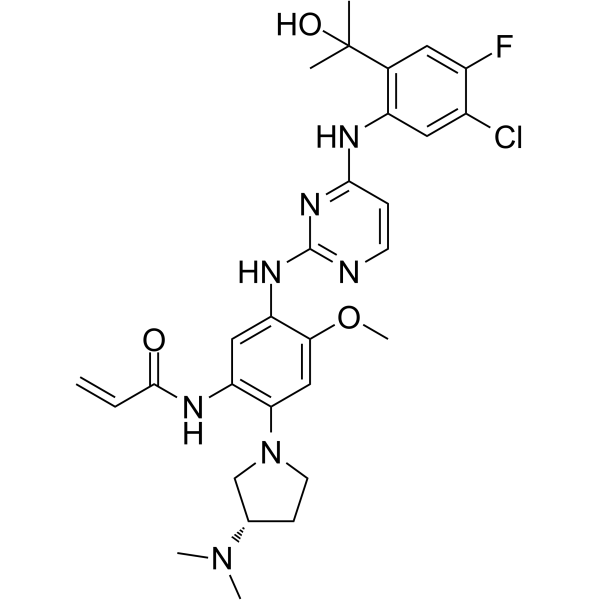
-
GC13344
(Z)-FeCP-oxindole
VEGFR-2 inhibitor
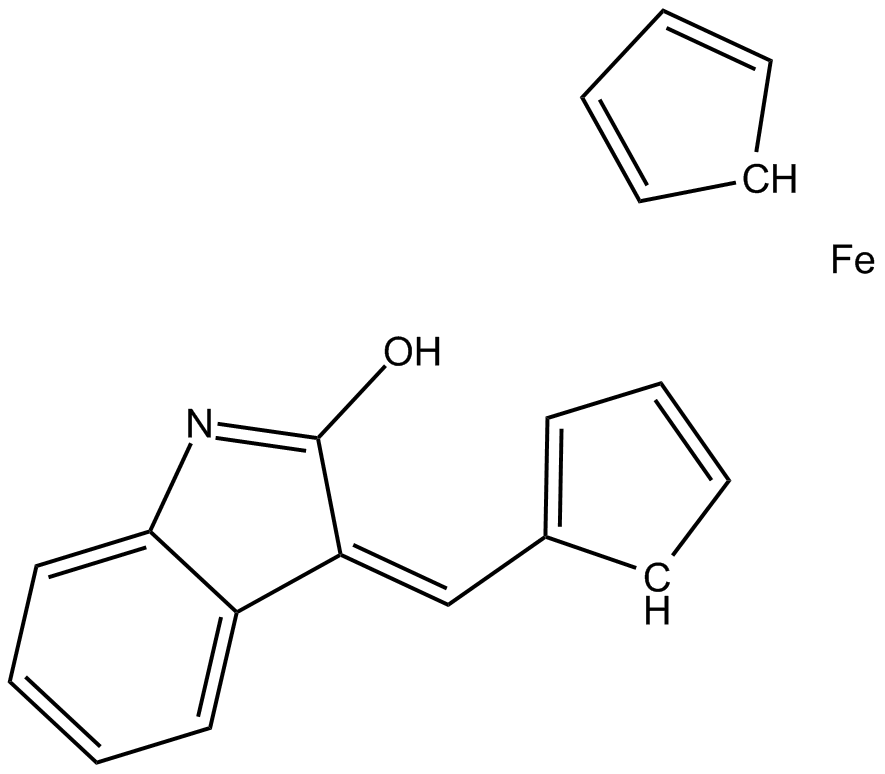
-
GC62291
(Z)-Orantinib
(Z)-SU6668; (Z)-TSU-68
(Z)-Orantinib ((Z)-SU6668) is a potent, selective, orally active and ATP competitive inhibitor of Flk‐1/KDR, PDGFRβ, and FGFR1, with IC50s of 2.1, 0.008, and 1.2 ?M, respectively. (Z)-Orantinib is a potent antiangiogenic and antitumor agent that induces regression of established tumors.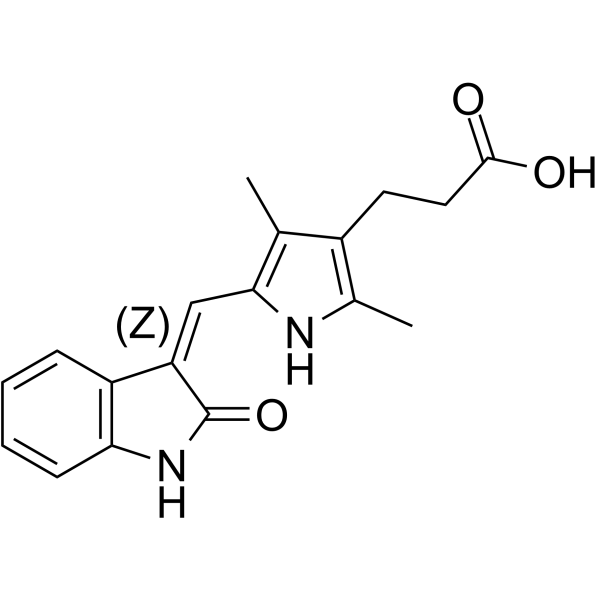
-
GC12172
1-Naphthyl PP1
1NaphthylPP1, PP1 Analog
Src family kinases inhibitor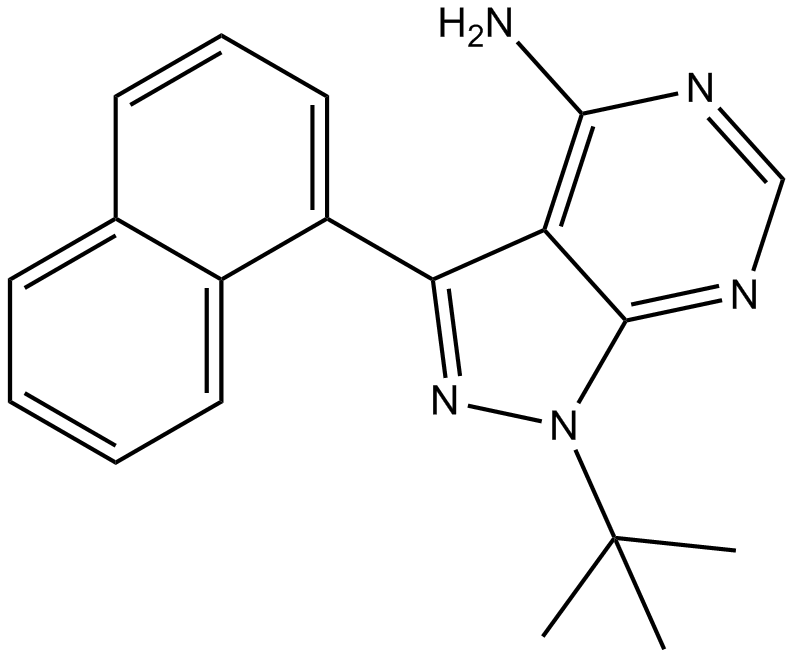
-
GC34119
1-Naphthyl PP1 hydrochloride (1-NA-PP 1 hydrochloride)
1-Naphthyl PP1 hydrochloride (1-NA-PP 1 hydrochloride) (1-NA-PP 1 hydrochloride) is a selective inhibitor of src family kinases. 1-Naphthyl PP1 hydrochloride (1-NA-PP 1 hydrochloride) inhibits v-Src and c-Fyn, c-Abl, CDK2 and CAMK II with IC50s of 1.0, 0.6, 0.6, 18 and 22 μM, respectively.
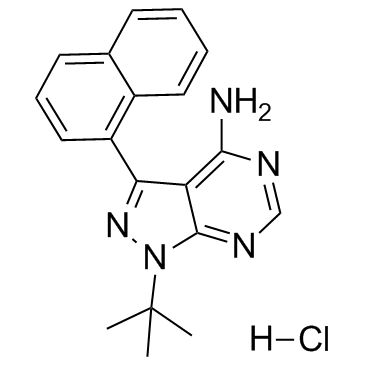
-
GC11696
1-NM-PP1
PP1 Analog II
Pp60c-src inhibitor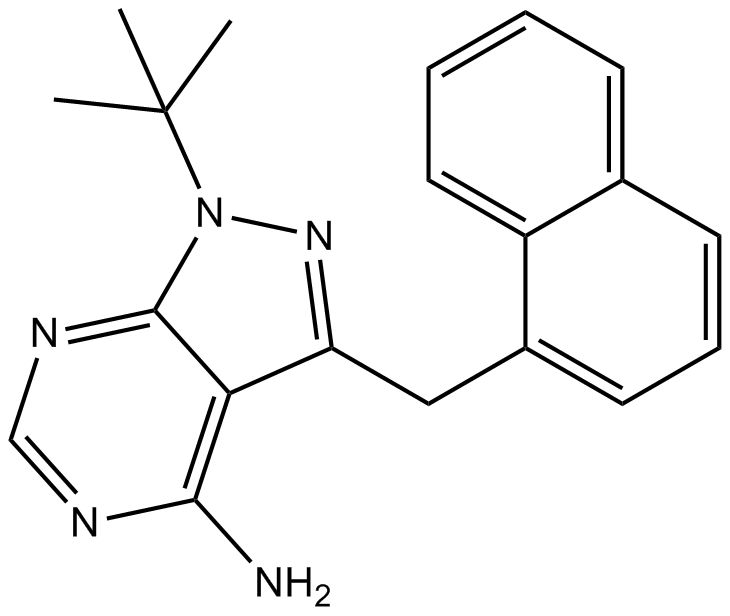
-
GC42026
1-Palmitoyl-2-hydroxy-sn-glycero-3-PC
1-Hexadecanoyl-sn-glycero-3-Phosphatidylcholine, 1-Hexadecanoyl-sn-glycero-3-Phosphocholine, 1-Hexadecanoyl-sn-glycerol-3-Phosphorylcholine, Lyso-PC, 1-Palmitoyl-sn-glycero-3-Phosphocholine, PC(16:0/0:0), 16:0/0:0-PC
1-Palmitoyl-2-hydroxy-sn-glycero-3-PC is an abundant gonadal LPC (lysophosphatidylcholine).
-
GC35053
123C4
123C4 is a potent, selective and competitive agonist of the receptor tyrosine kinase EPHA4, with a Ki value of 0.65 μM.
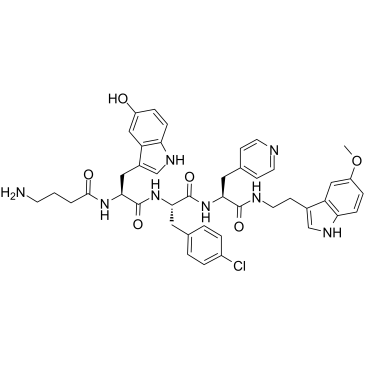
-
GC46474
18-Deoxyherboxidiene
RQN-18690A
A bacterial metabolite with antiangiogenic activity
-
GC33087
2,4-Pyrimidinediamine with linker
VEGFR-2-IN-5
2,4-Pyrimidinediamine with linker is a VEGFR2 inhibitor extracted from patent WO2013055780A1, Page 69.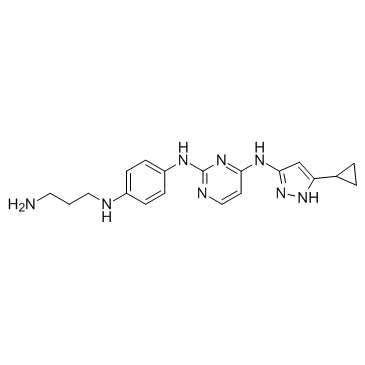
-
GC33519
2,5-Dihydroxybenzoic acid
Carboxyhydroquinone, 5-Hydroxysalicylic Acid, NSC 27224, NSC 49098, NSC 78825
A benzoic acid with diverse biological activities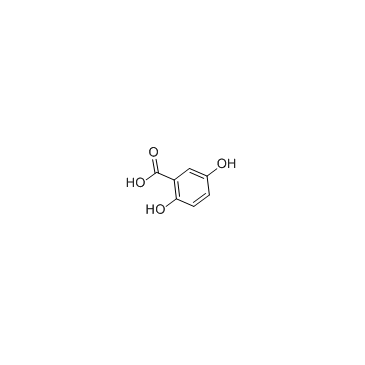
-
GC10408
2-D08
Sumoylation inhibitor
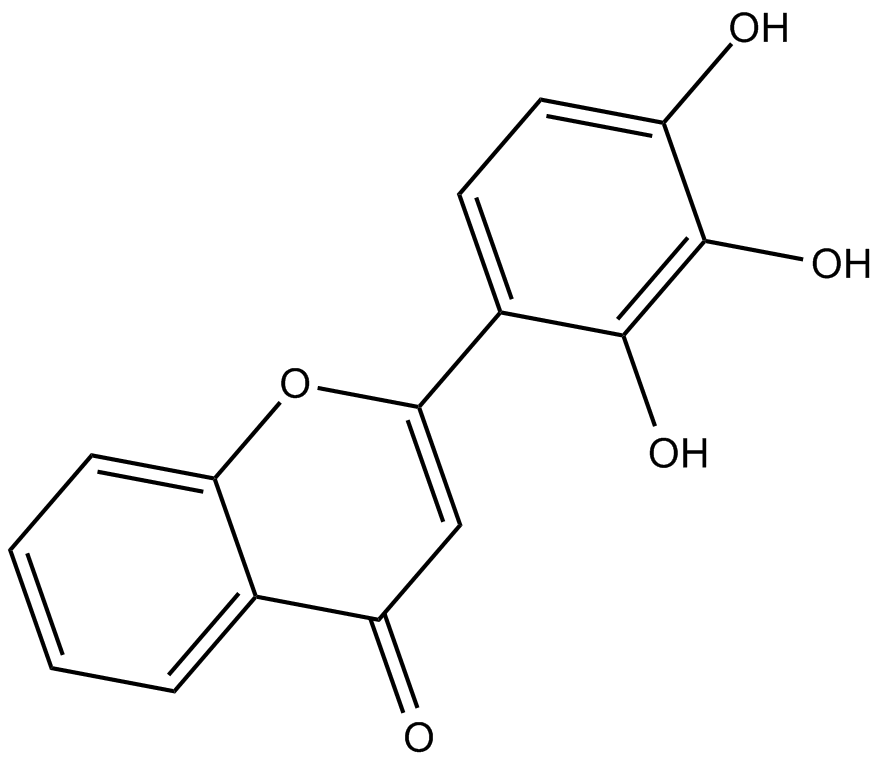
-
GC33319
2-Keto Crizotinib (PF-06260182)
2-Keto Crizotinib (PF-06260182) (PF-06260182) is an active lactam metabolite of crizotinib.
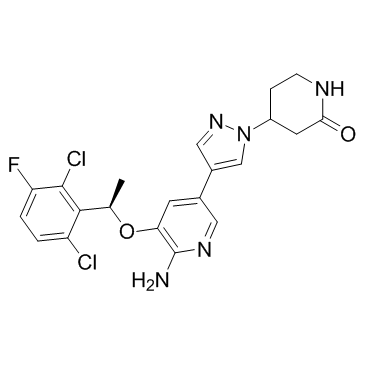
-
GC35095
2-Phospho-L-ascorbic acid trisodium salt
2-Phospho-L-ascorbic acid trisodium salt (2-Phospho-L-ascorbic acid trisodium) is a long-acting vitamin C derivative that can stimulate collagen formation and expression.
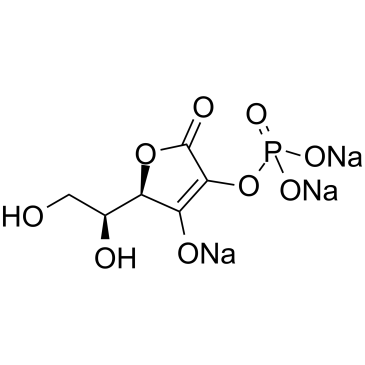
-
GC39689
3-Hydroxy Midostaurin
CGP52421
3-Hydroxy Midostaurin (CGP 52421), a metabolite of PKC412, effectively inhibits FMS-like tyrosine kinase-3 (FLT3) autophosphorylation with IC50s of approximately 132 nM and 9.8 μM in culture medium and plasma, respectively. 3-Hydroxy Midostaurin is less selective but more cytotoxic than PKC412.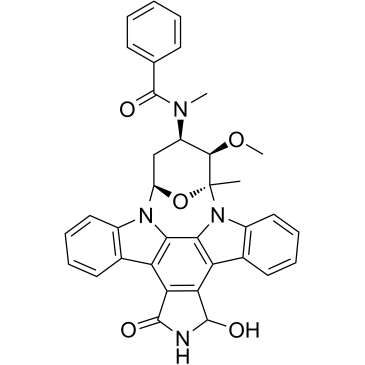
-
GC25017
4,4'-Bis(4-aminophenoxy)biphenyl
4,4'-Bis(4-aminophenoxy)biphenyl is a monomer for polyimide production.
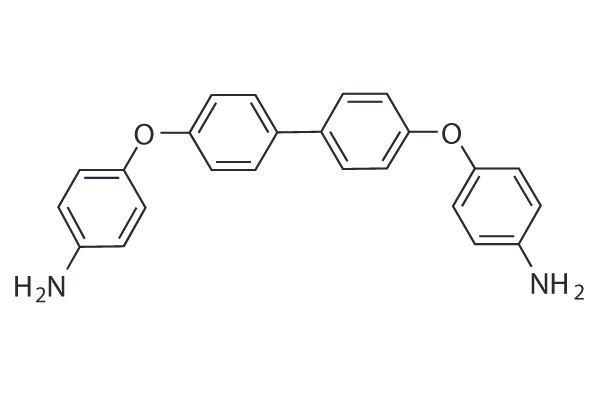
-
GC46628
4-Chloro-6,7-bis(2-methoxyethoxy)quinazoline
A building block and synthetic intermediate

-
GC12818
4-methyl Erlotinib
EGFR inhibitor
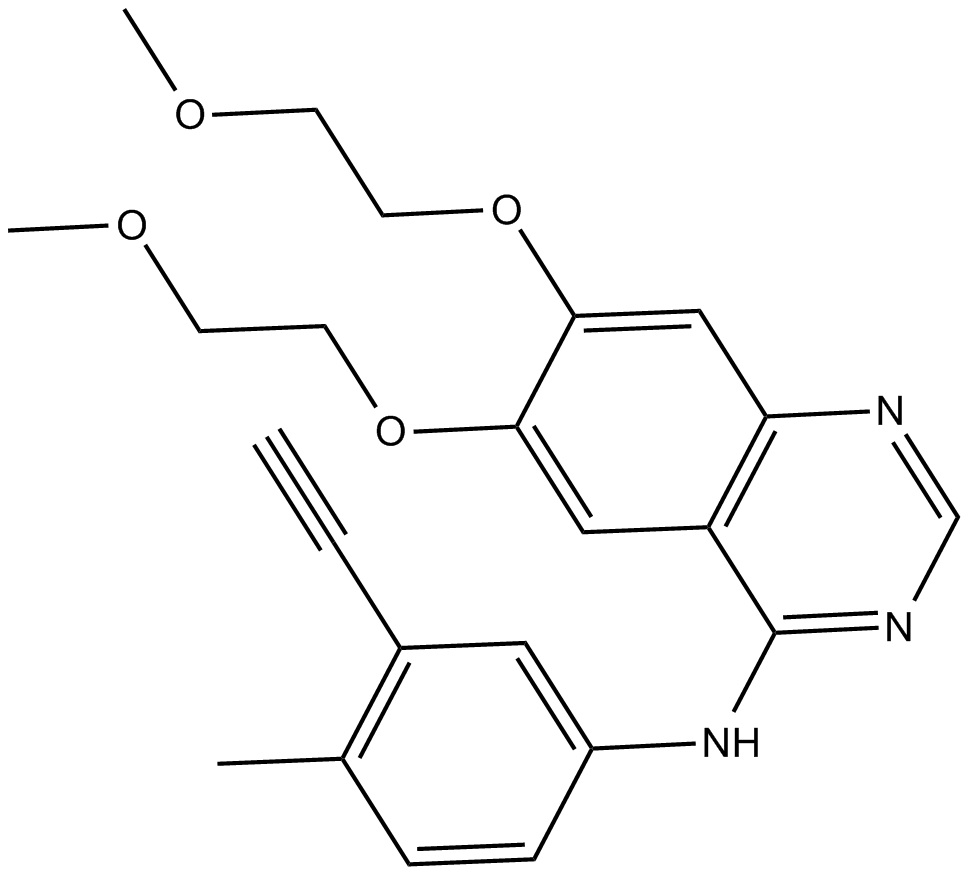
-
GC63805
4SC-203
4SC-203 is a potent multikinase inhibitor with potential antineoplastic activity. 4SC-203 selectively FLT3/STK1, FLT3 mutated forms, and VEGFRs.
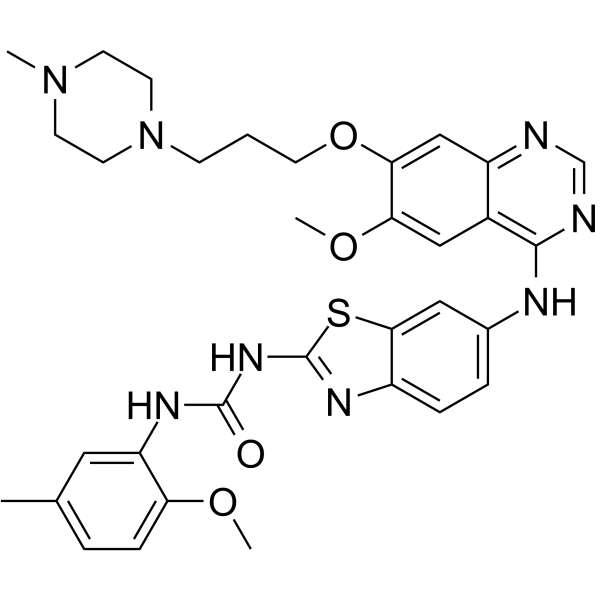
-
GC11205
5'-Fluoroindirubinoxime
5’-FIO, 5′-Fluoroindirubinoxime
FMS-like receptor tyrosine kinase-3 (FLT3) inhibitor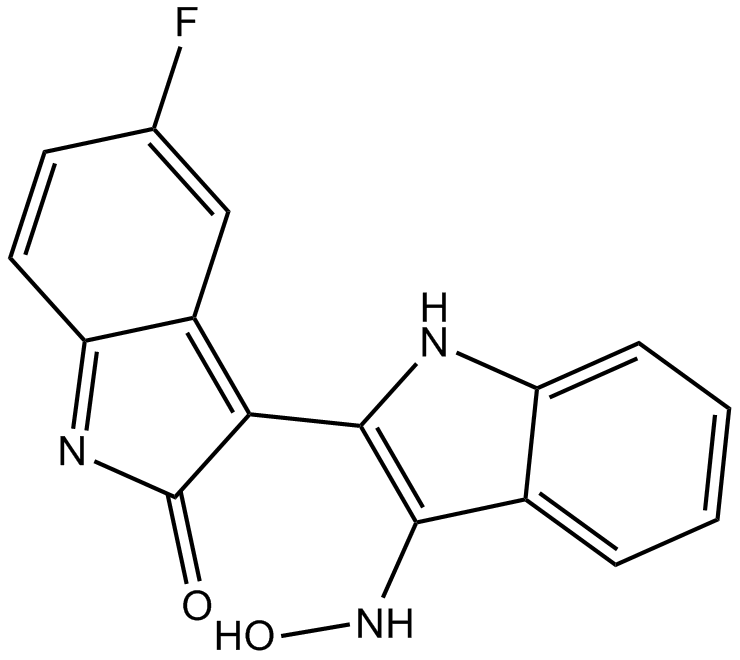
-
GC68568
5α-Hydroxycostic acid
5α-Hydroxycostic acid is a diterpenoid extracted from the herb Laggera alata. It inhibits angiogenesis and suppresses breast cancer cell migration by regulating the VEGF/VEGFR2 and Ang2/Tie2 pathways.

-
GC50157
6bK
Insulin degrading enzyme (IDE) inhibitor
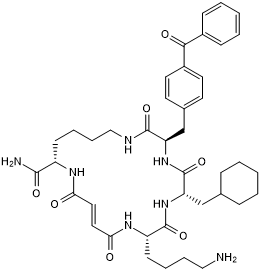
-
GC16853
7,8-Dihydroxyflavone
7,8-DHF
Tyrosine kinase receptor B (TrkB) agonist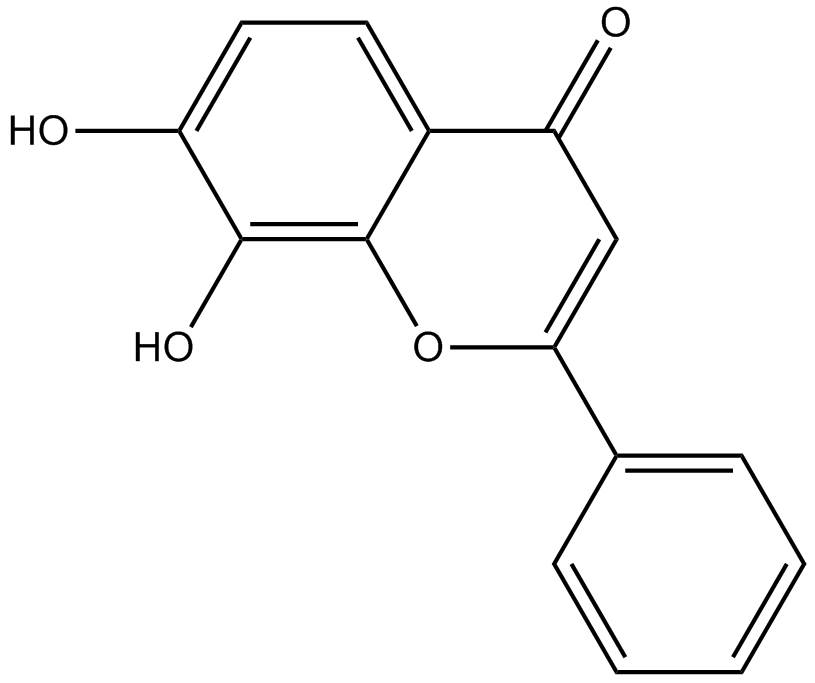
-
GC32992
7-Hydroxy-4-chromone (7-Hydroxychromone)
7-Hydroxychromone is a Src kinase inhibitor with an IC50 of <300 μM.
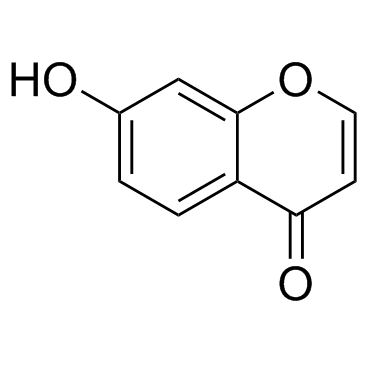
-
GC42616
7-oxo Staurosporine
BMY 41950, RK-1409
7-oxo Staurosporine is an antibiotic originally isolated from S.

-
GC48840
9-Methoxyellipticine
Methoxy-9-ellipticine, NSC 69187
An alkaloid with anticancer activity
-
GC35209
A 419259
RK-20449
An inhibitor of Src family kinases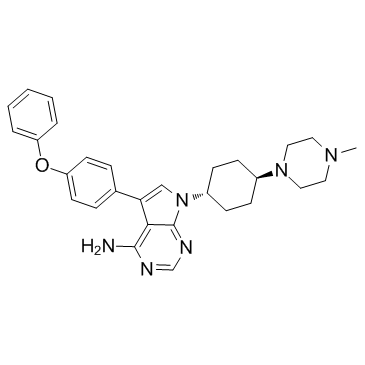
-
GC17789
A 419259 trihydrochloride
RK-20449
LCK inhibitor, orally available
-
GC35213
A-770041
A-770041 is a selective and orally active Src-family Lck inhibitor.

-
GC35214
A-9758
A-9758 is a RORγ ligand and a potent, selective RORγt inverse agonist (IC50=5 nM), and exhibits robust potency against IL-17A release.
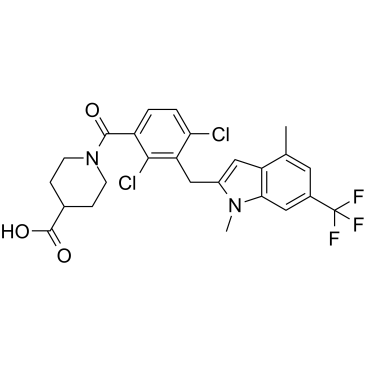
-
GC10938
AAL-993
VEGFR Tyrosine Kinase Inhibitor VI,ZK 260253
VEGF receptors inhibitor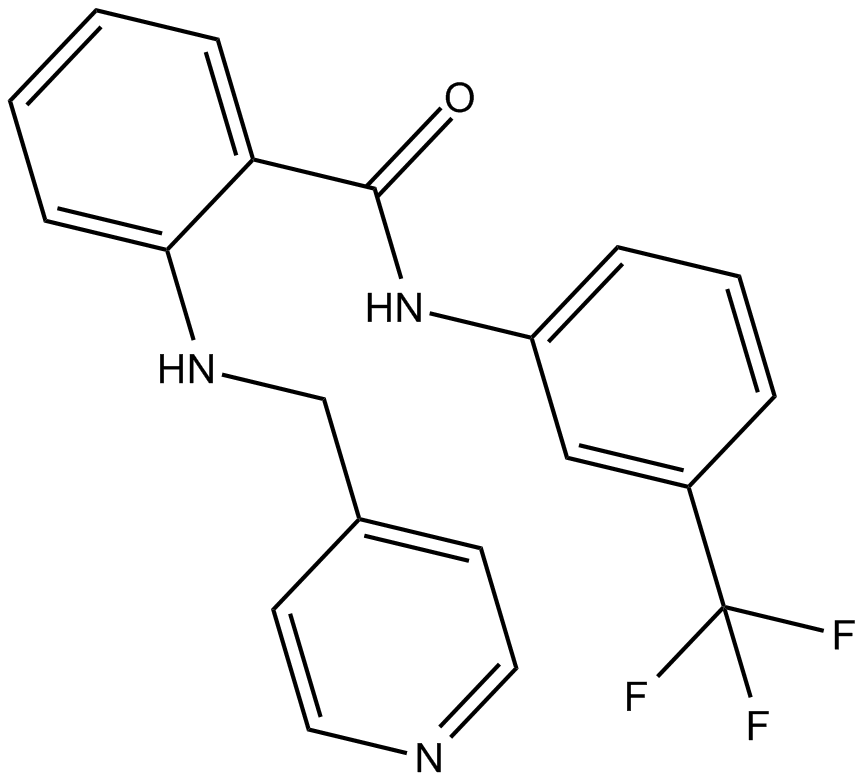
-
GC65894
ABN401
ABN401 is a highly potent and selective ATP-competitive c-MET inhibitor with an IC50 value of 10 nM. ABN401 has cytotoxic activity against MET-addicted cancer cells. ABN401 can inhibit c-MET phosphorylation in tumor tissues. ABN401 can be used for researching anticancer.

-
GC13257
AC480 (BMS-599626)
BMS-599626
AC480 (BMS-599626) (AC480) is a selective and orally bioavailable HER1 and HER2 inhibitor, with IC50s of 20 and 30 nM, respectively. AC480 (BMS-599626) displays ~8-fold less potent to HER4 (IC50=190 nM), >100-fold to VEGFR2, c-Kit, Lck, MEK. AC480 (BMS-599626) inhibits tumor cell proliferation, and has potential to increase tumor response to radiotherapy.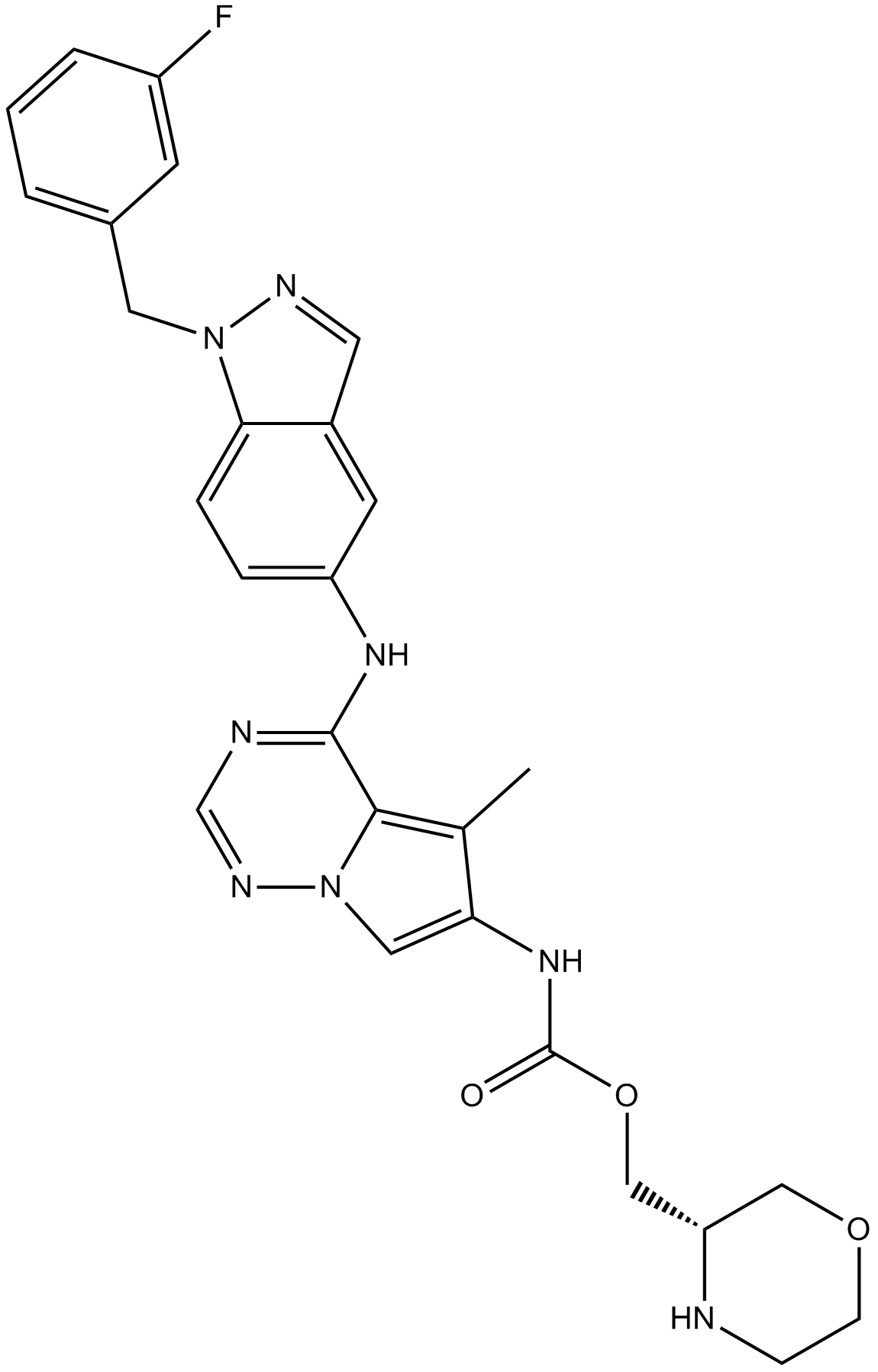
-
GC18167
AC710
A potent and selective PDGFR family inhibitor
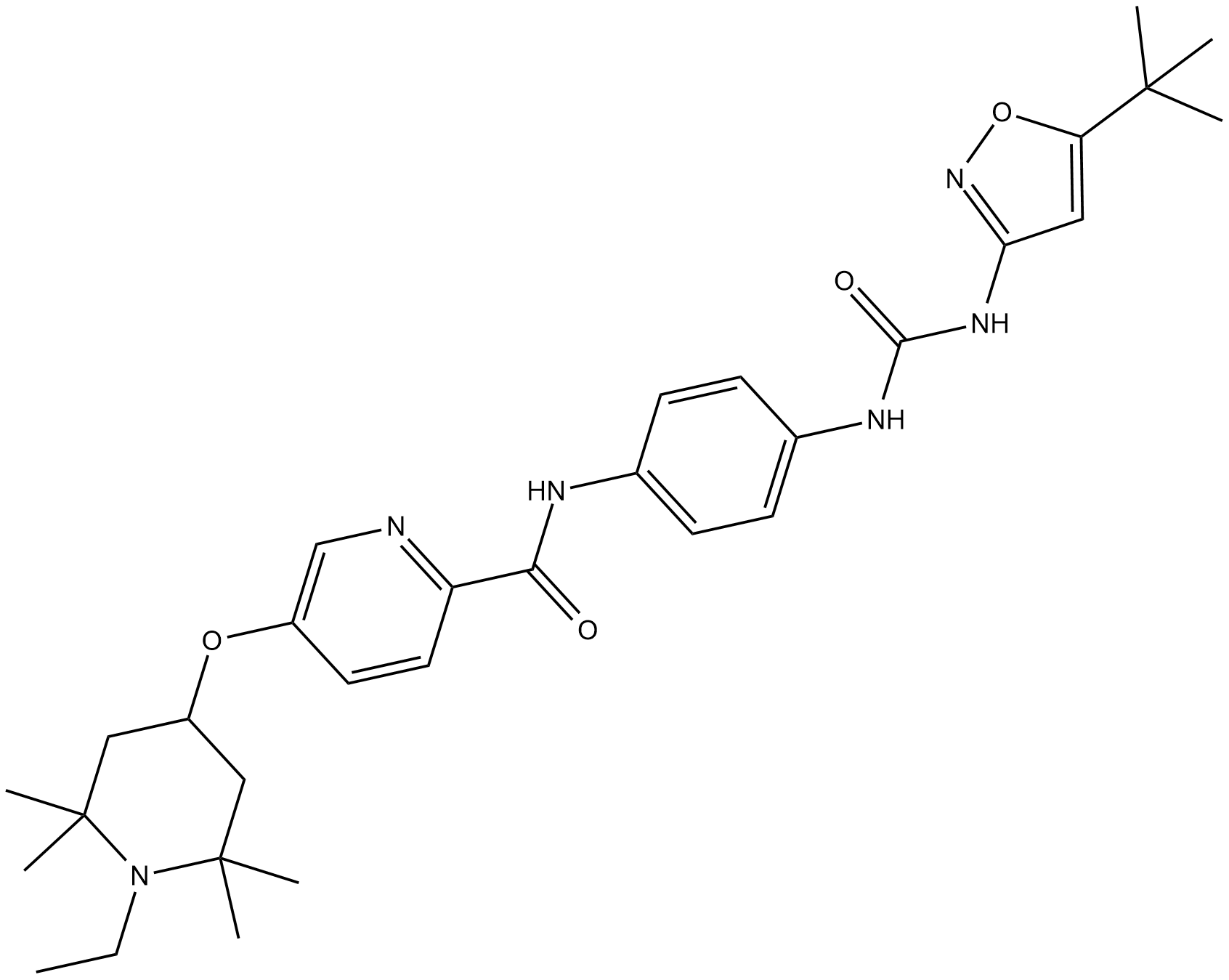
-
GC35225
AC710 Mesylate
AC710 Mesylate is a potent PDGFR inhibitor with Kds of 0.6, 1.57, 1, 1.3, 1.0 nM for FLT3, CSF1R, KIT, PDGFRα and PDGFRβ, respectively.
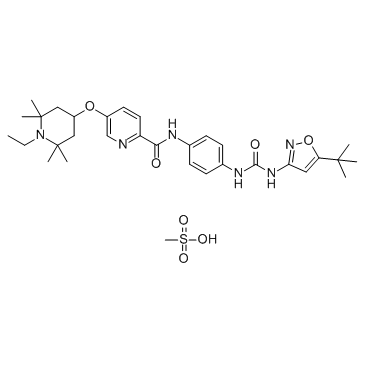
-
GC68604
Acetyl Gastric Inhibitory Peptide (human) (TFA)
Human N-acetyl GIP TFA
Acetyl Gastric Inhibitory Peptide (human) TFA is a fatty acid derivative analog of glucose-dependent insulinotropic polypeptide, which has improved anti-hyperglycemic and insulinotropic properties. Acetyl Gastric Inhibitory Peptide (human) TFA can be used for research on diabetes, insulin resistance, and obesity.

-
GC30242
Acrizanib
LHA510
Acrizanib (LHA510) is a VEGFR-2 inhibitor, with an IC50 of 17.4 nM for BaF3-VEGFR-2.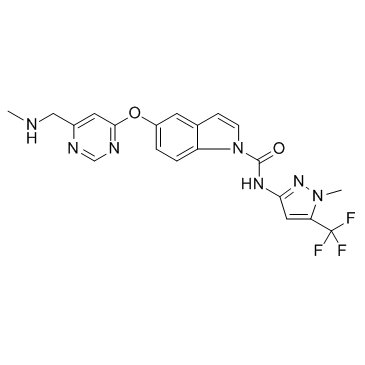
-
GC15801
ACTB-1003
ACTB-1003
ACTB-1003 (ACTB-1003) is an oral kinase inhibitor with IC50s of 6, 2 and 4 nM for FGFR1, VEGFR2 and Tie-2.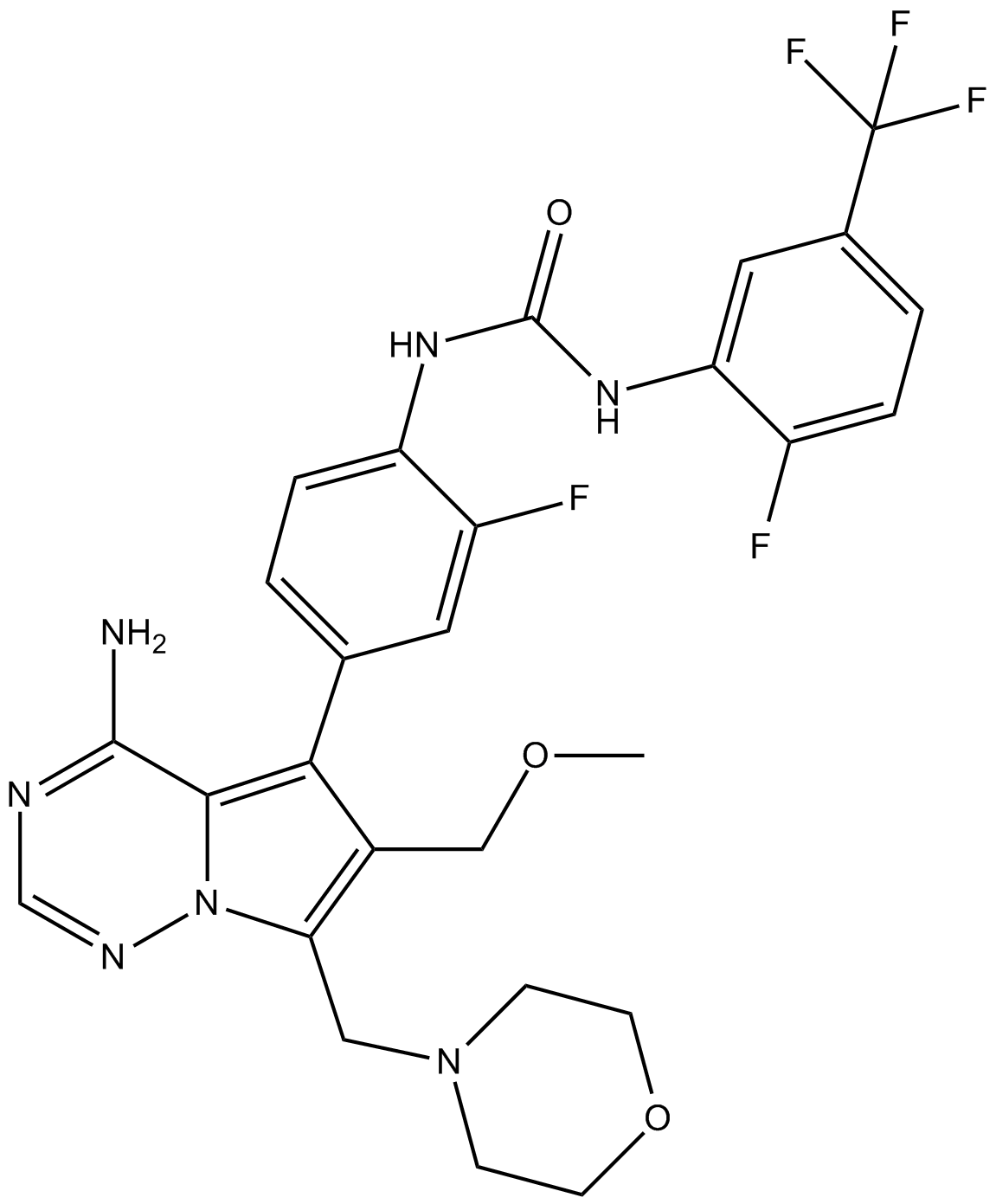
-
GC68623
AD57
AD57 is a type of orally active multi-kinase inhibitor that inhibits the activity of RET, BRAF, S6K and Src, but has significantly reduced activity against mTOR.

-
GC32797
AD80
AD80, a multikinase inhibitor, inhibits RET, RAF,SRCand S6K, with greatly reduced mTOR activity.
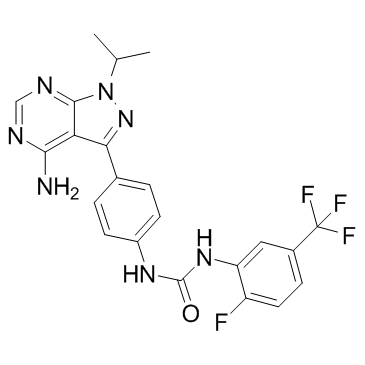
-
GC15579
Adaphostin
NSC 680410
P210bcr/abl tyrosine kinase inhibitor
-
GC68626
Adhesamine
Adhesamine is a dumbbell-shaped molecule that can activate the MAPK/FAK pathway. Adhesamine promotes adhesion and growth of mammalian cells. Adhesamine accelerates differentiation of primary cultured mouse hippocampal neurons and improves survival rate.

-
GC11892
AEE788 (NVP-AEE788)
NVP-AEE788
AEE788 (NVP-AEE788) is an inhibitor of the EGFR and ErbB2 with IC50 values of 2 and 6 nM, respectively.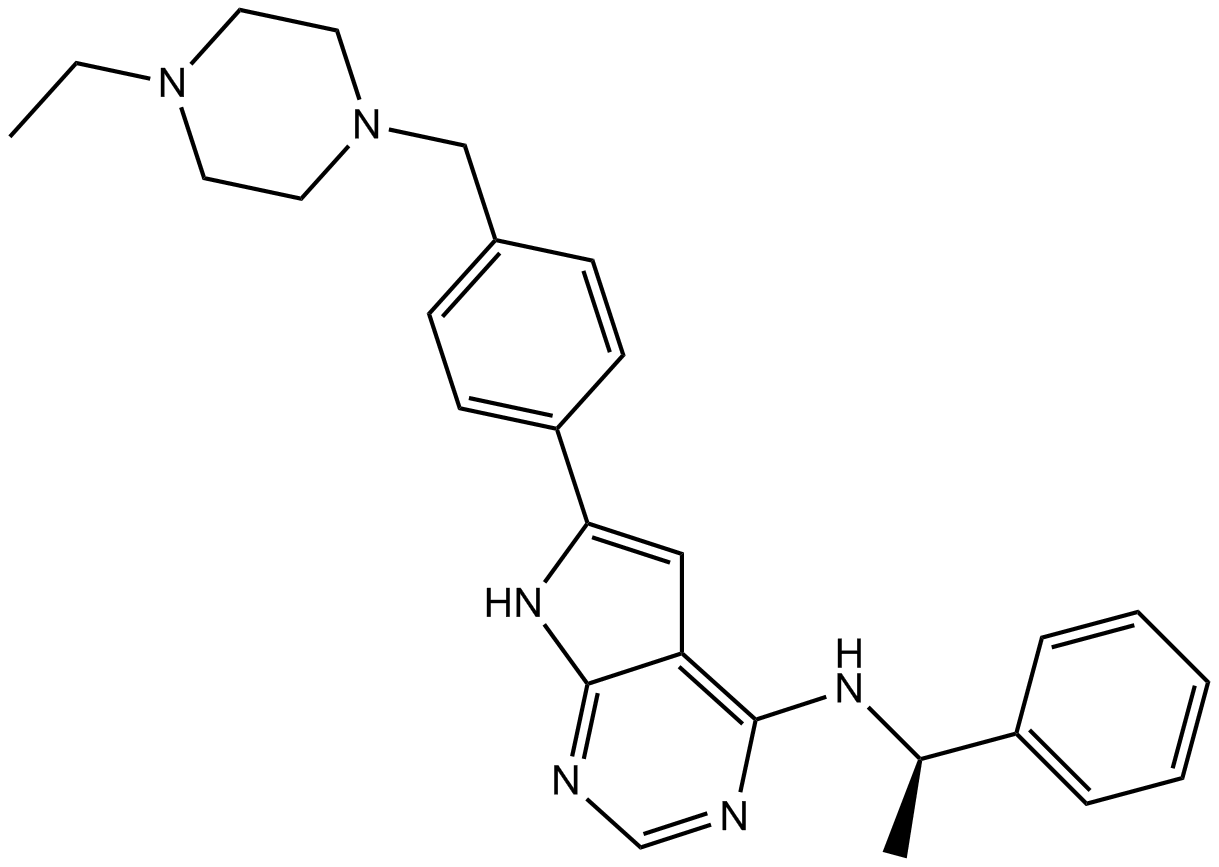
-
GC10707
Afatinib dimaleate
Afatinib dimaleate, BIBW 2992, BIBW 2992MA2
An inhibitor of EGFR and ErbB2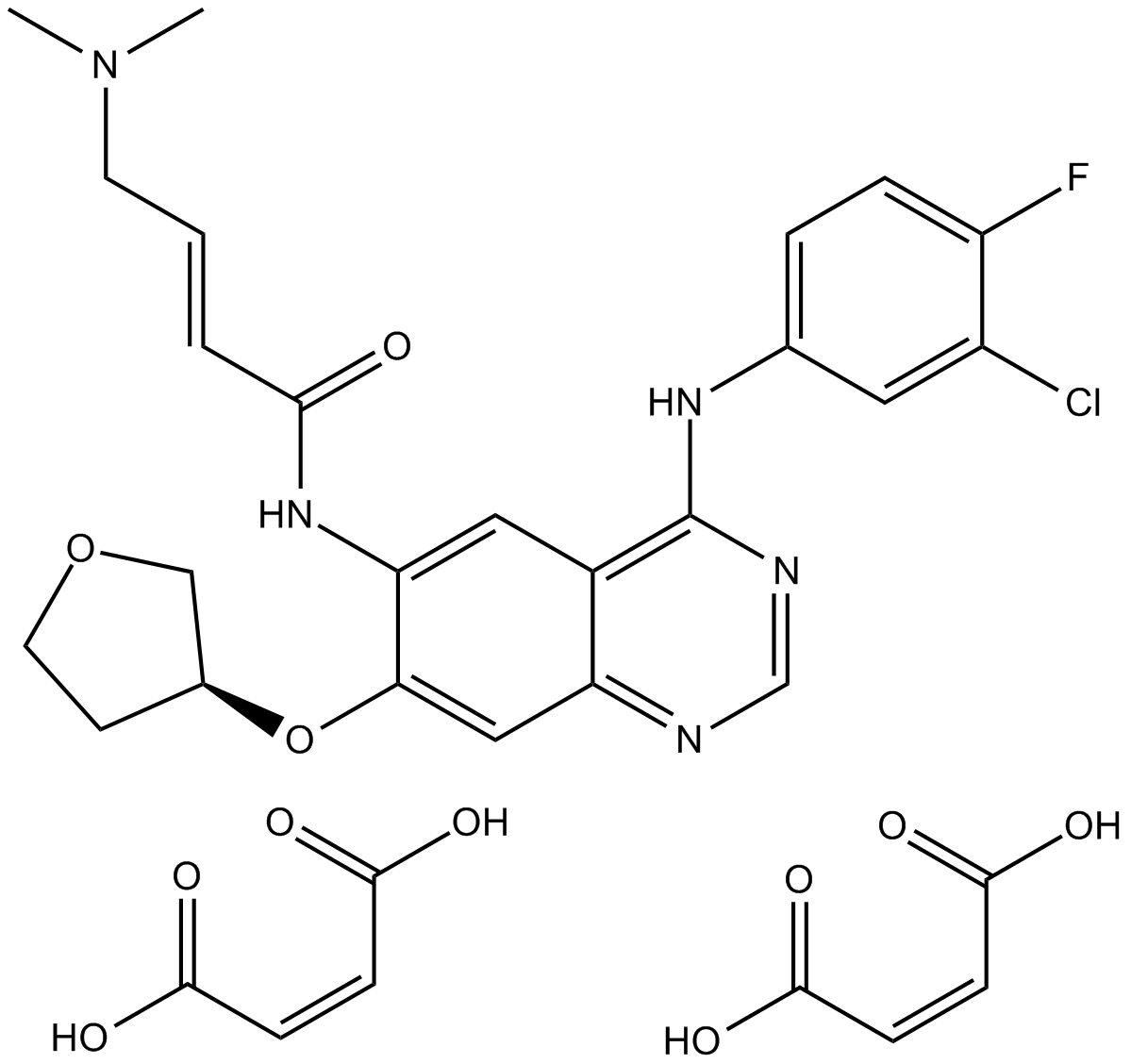
-
GC60567
Afatinib impurity 11
Afatinib impurity 11 is an impurity of Afatinib. Afatinib is an irreversible EGFR family inhibitor with IC50s of 0.5 nM, 0.4 nM, 10 nM and 14 nM for EGFRwt, EGFRL858R, EGFRL858R/T790M and HER2, respectively.
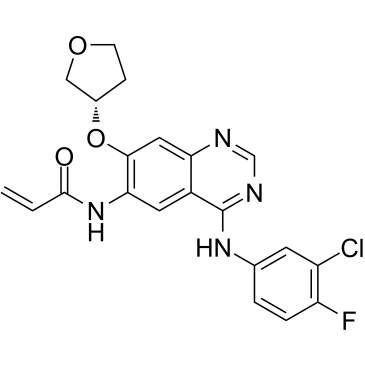
-
GC13296
Afatinib(BIBW2992)
A selective dual inhibitor of EGFR/HER2
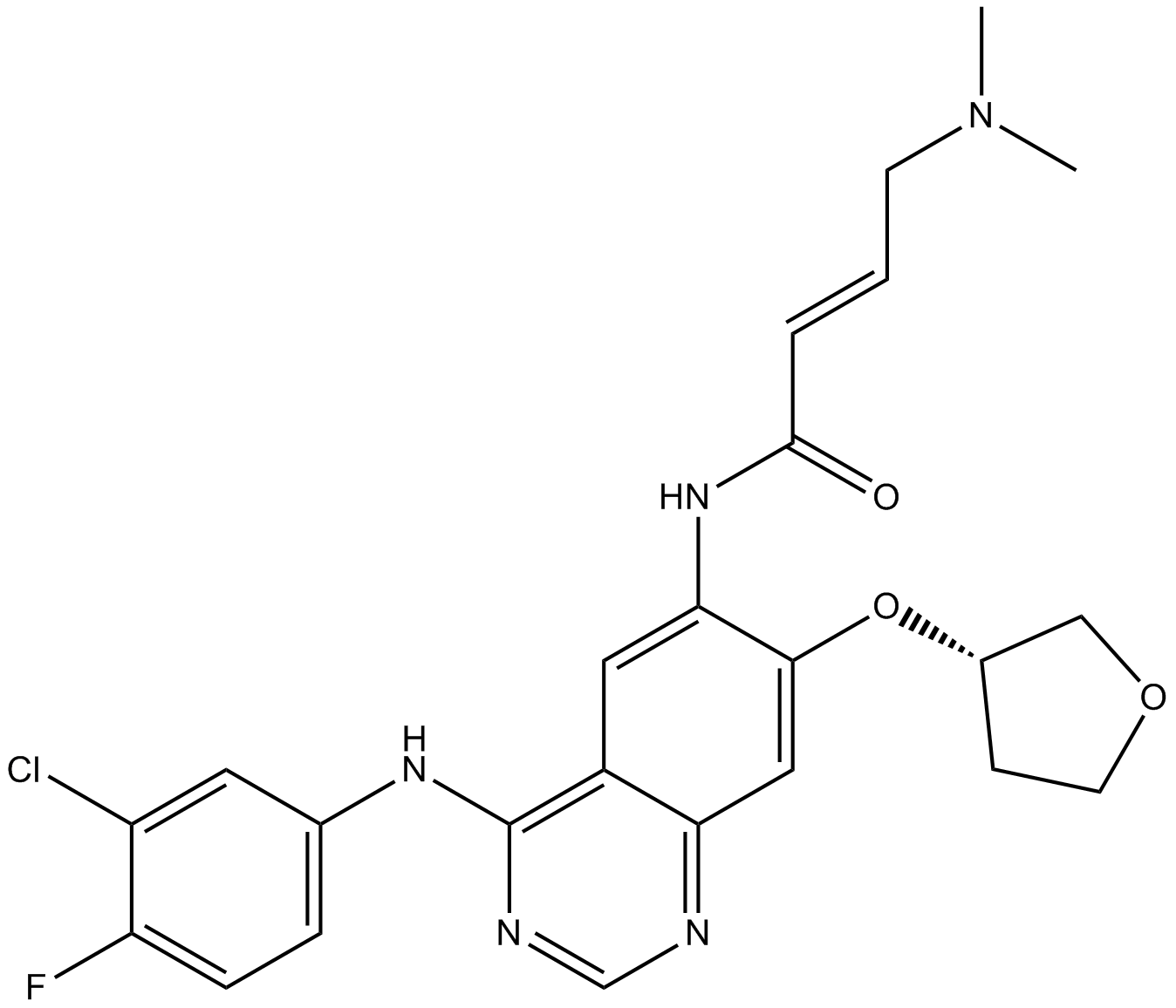
-
GC46809
Afatinib-d6
BIBW 2992 D6
An internal standard for the quantification of afatinib
-
GC68628
Aflibercept
VEGF Trap; VEGF-TRAPR1R2; VEGF-trapR1
Aflibercept (VEGF Trap) is a soluble decoy VEGFR composed of Ig domains from VEGFR1 and VEGFR2 fused to the Fc domain of human IgG1. Aflibercept inhibits the VEGF signaling pathway by blocking pathways regulated by VEGF. Aflibercept can be used in research for age-related macular degeneration (AMD) and cardiovascular diseases.
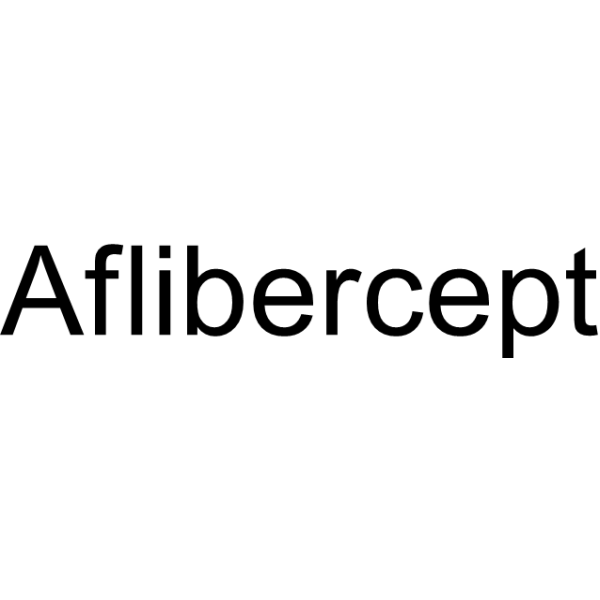
-
GC38645
AG 1295
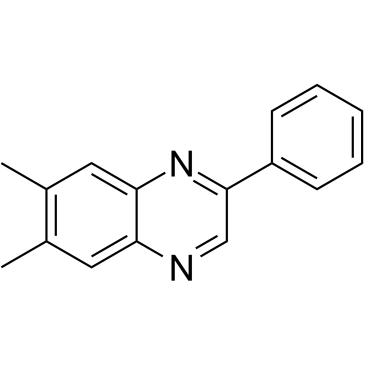
-
GC50013
AG 1478 hydrochloride
Highly potent EGFR-kinase inhibitor
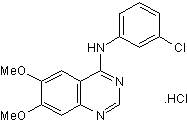
-
GC17489
AG 494
Tyrphostin AG-494
Potent EGFR-kinase inhibitor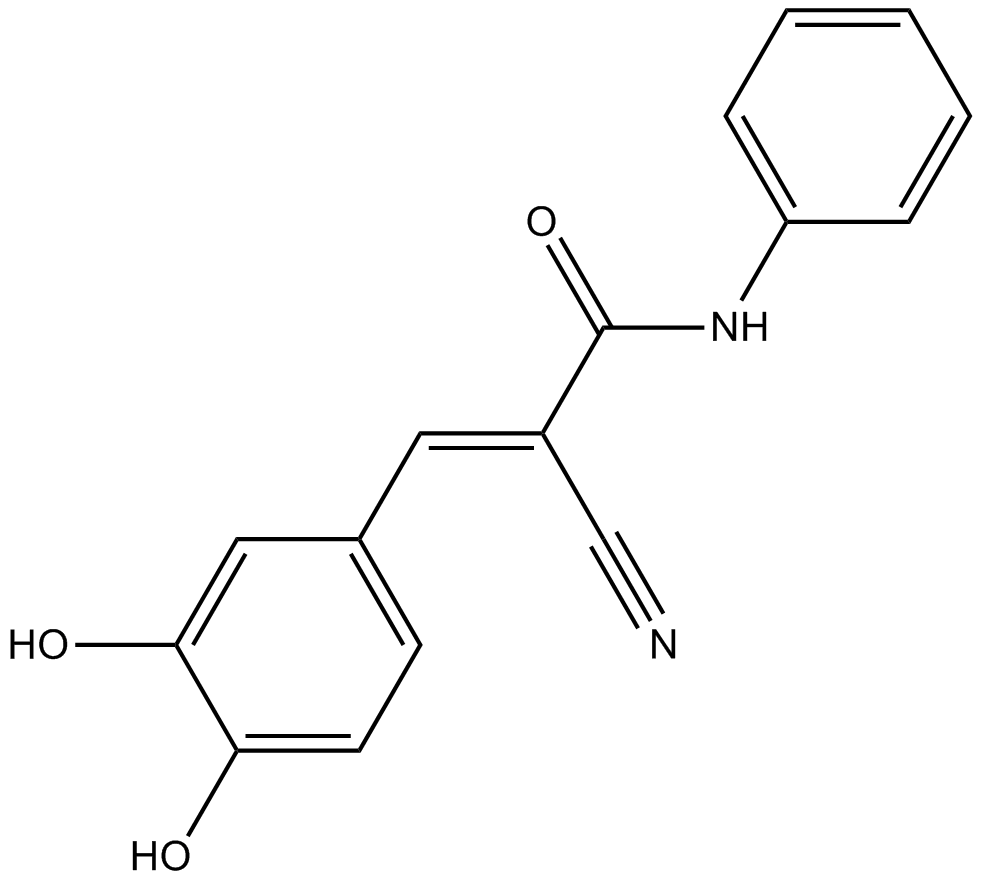
-
GC11744
AG 555
Tyrphostin AG-555, Tyrphostin B46
Potent EGFR-kinase inhibitor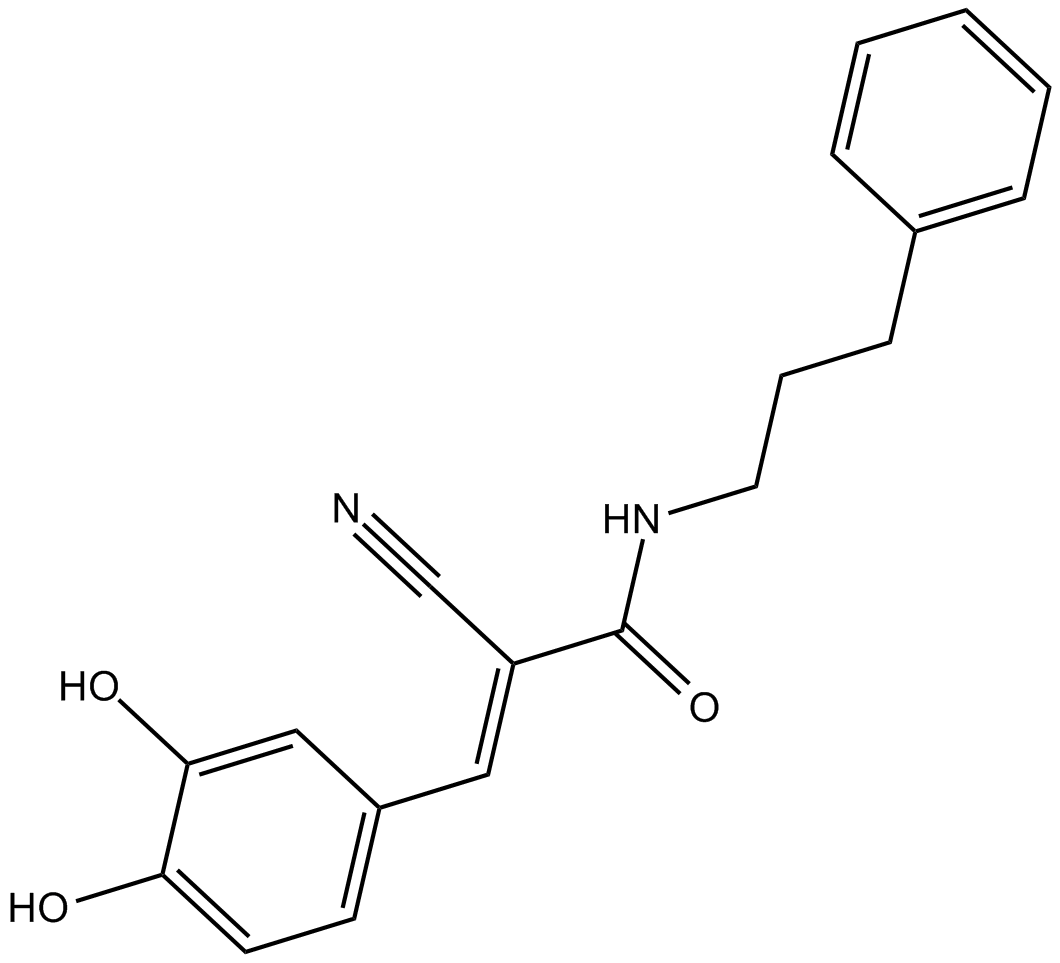
-
GC12233
AG 556
Tyrphostin 56, Tyrphostin AG-556
AG 556 is a highly selective EGFR inhibitor and also blocks LPS-induced TNF-α production.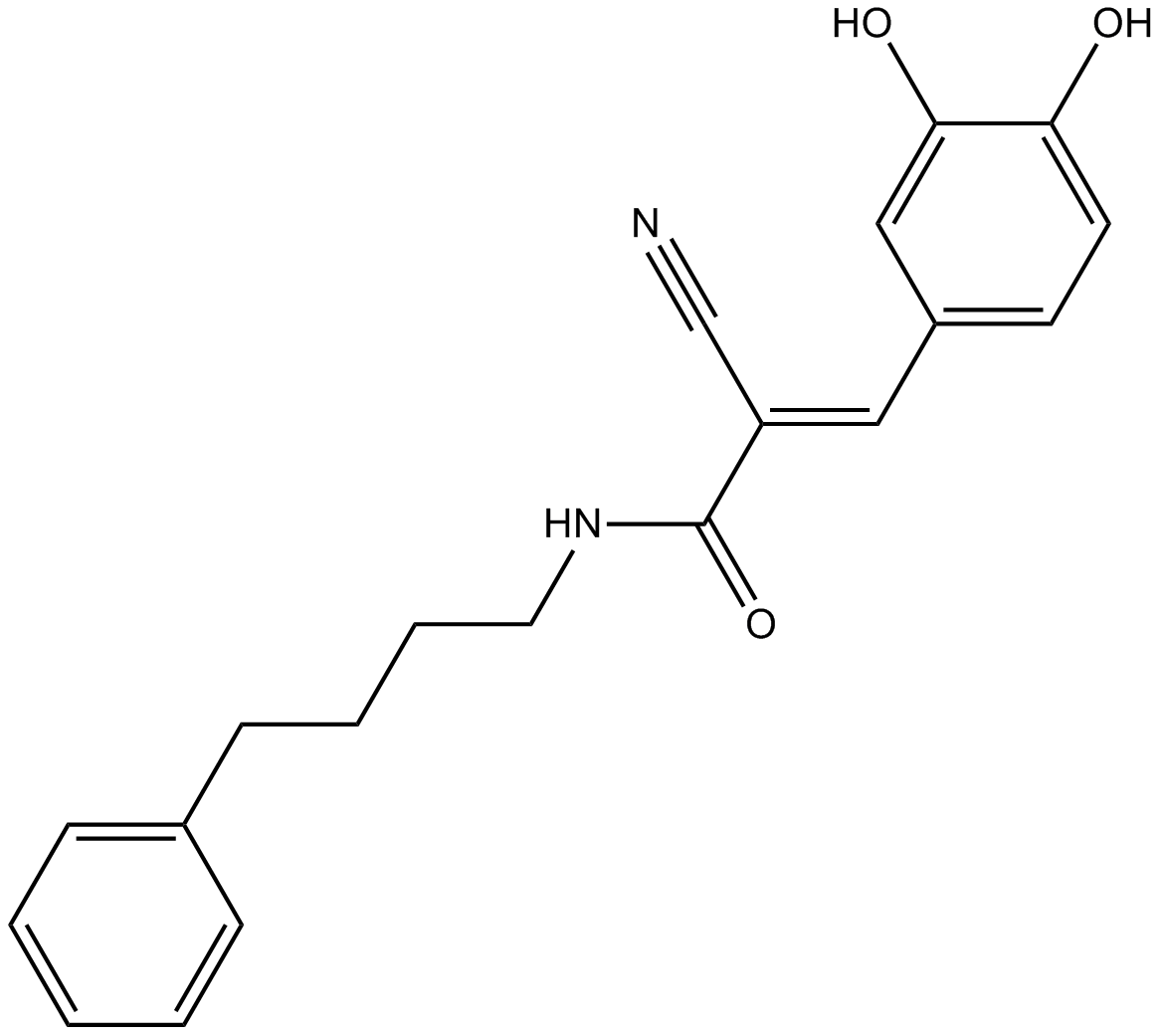
-
GC13168
AG 825
Tyrphostin AG825
Selective ErbB2 inhibitor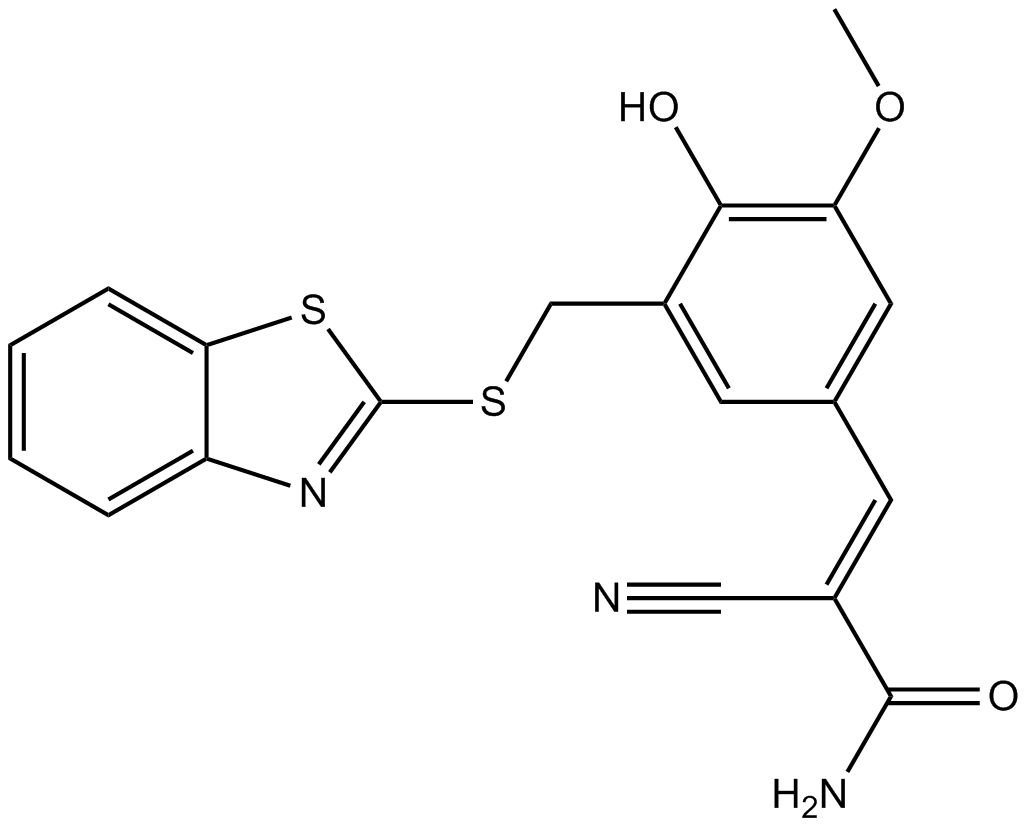
-
GC14494
AG 99
Tyrphostin 46, Tyrphostin AG-99
AG 99 ((E)-Tyrphostin 46) is a potent EGFR inhibitor.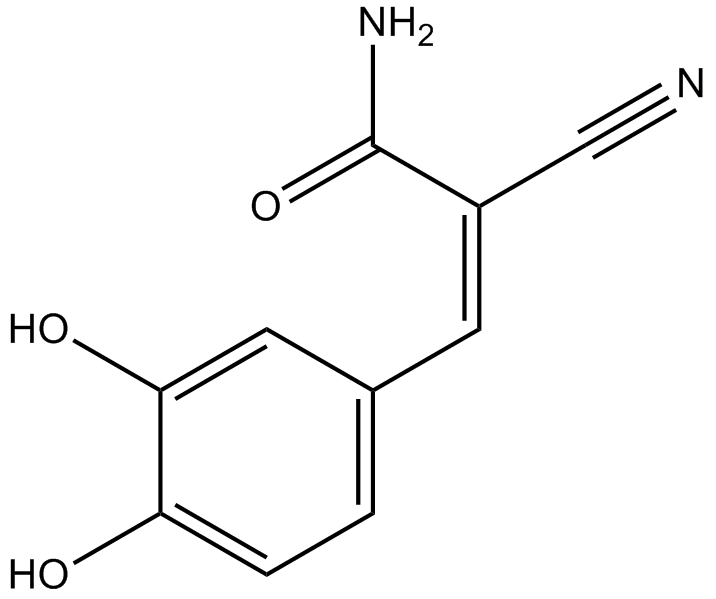
-
GC13697
AG-1024
AGS 200, Tyrphostin AG1024
Selective IGF-1R inhibitor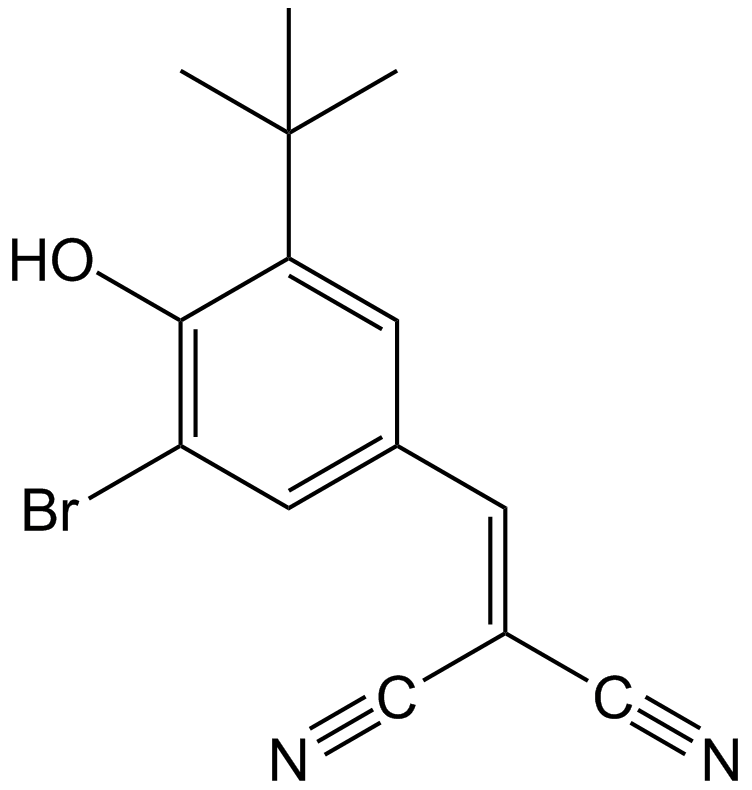
-
GC16235
AG-1295
NSC 380341,Tyrphostin AG-1295
potent and selective inhibitor of PDGF receptor kinase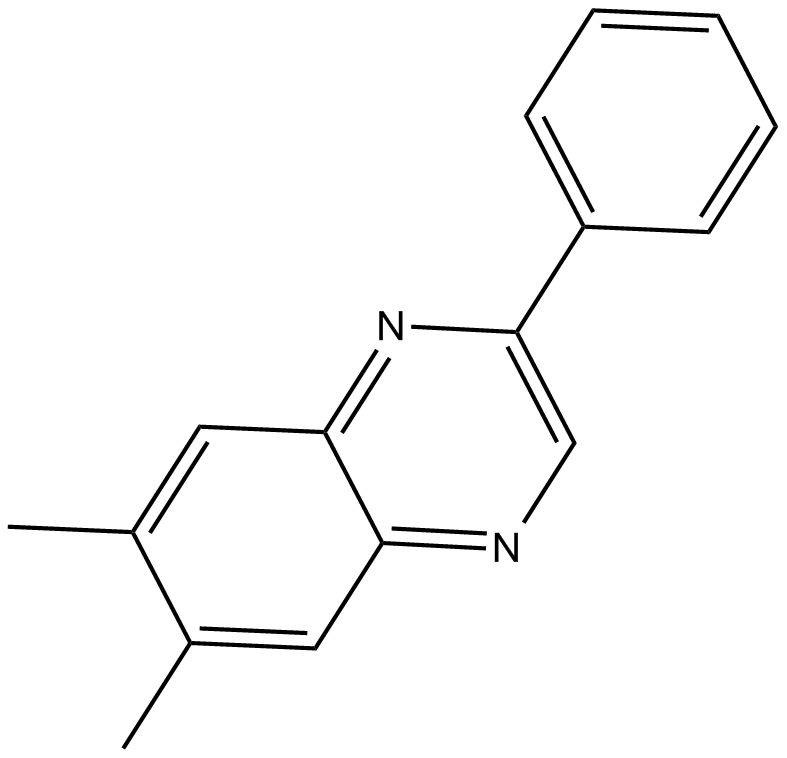
-
GC35263
AG-13958
AG-13958 (AG-013958), a potent VEGFR tyrosine kinase inhibitor, is used for treatment of choroidal neovascularization associated with age-related macular degeneration (AMD).
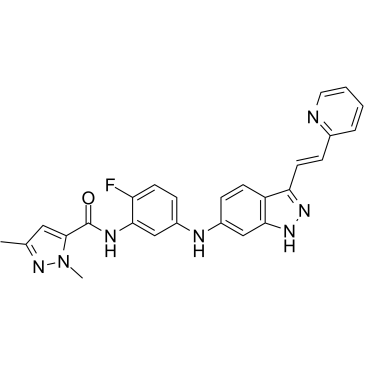
-
GC17226
AG-1478
Tyrphostin AG-1478; AG 1478; NSC 693255; AG1478
EGFR inhibitor,potent and selective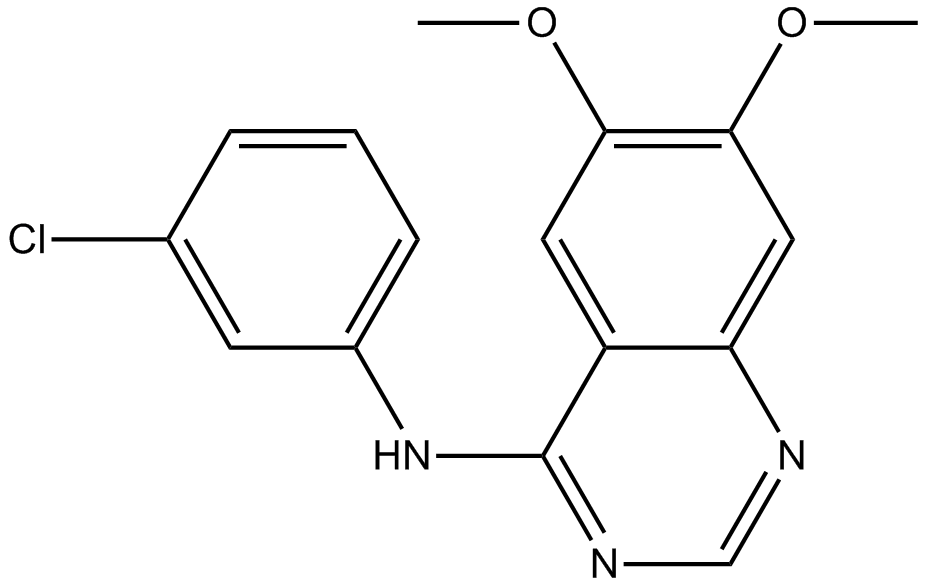
-
GC12864
AG-1557
Tyrphostin AG-1557
inhibitor of epidermal growth factor receptor (EGFR) tyrosine kinase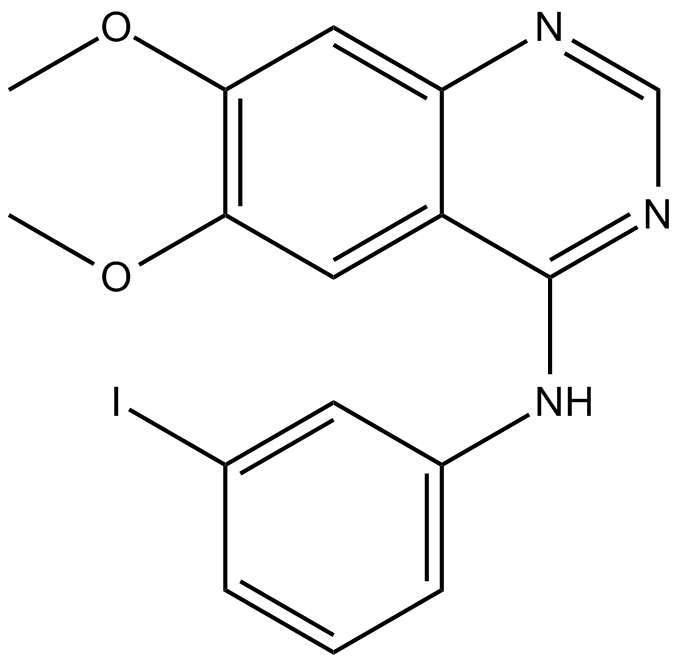
-
GC17647
AG-18
RG50810, RG50858, TX 825, Tyrphostin 23, Tyrphostin AG18
AG-18 (Tyrphostin A23) is an EGFR inhibitor with an IC50 and Kiof 35 and 11 μM, respectively.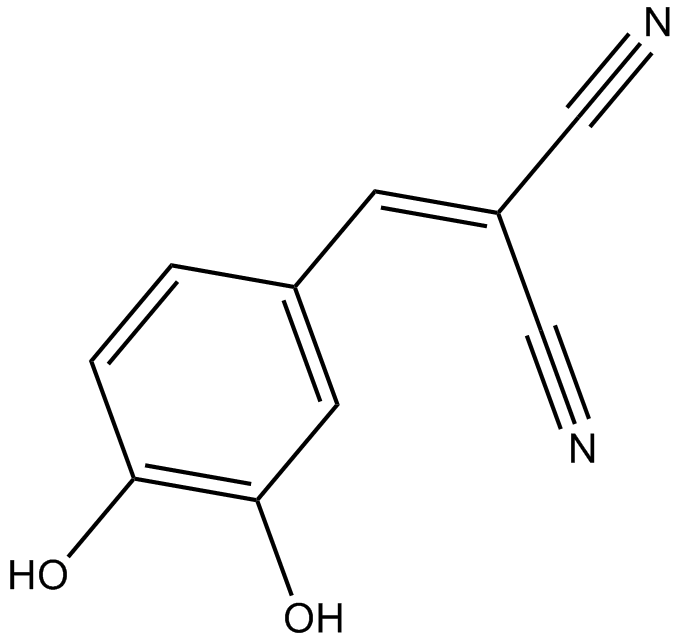
-
GC14890
AG-183
Tyrphostin 51
AG-183 is the Z configuration of Lanoconazole A51.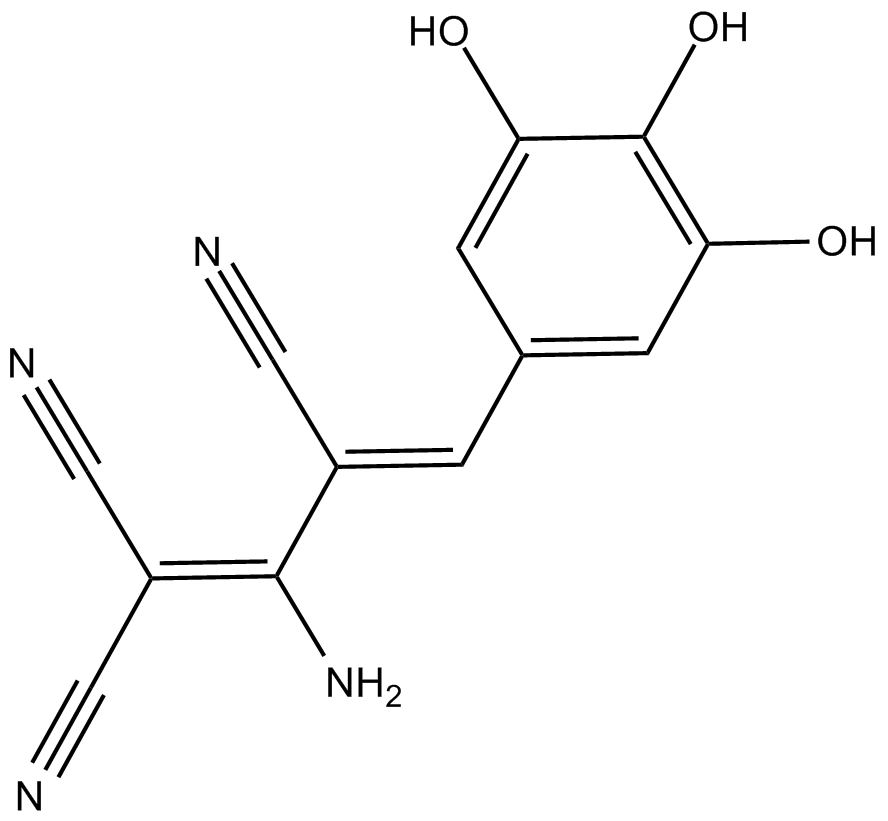
-
GC11024
AG-213
Tyrphostin AG-213,Tyrphostin 47
inhibitor of epidermal growth factor (EGF) receptor kinase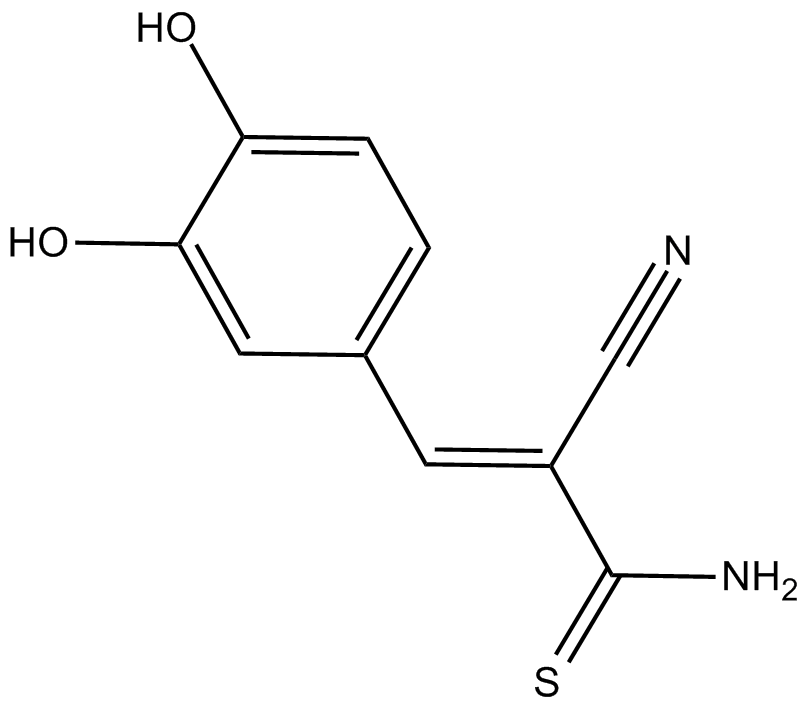
-
GC11712
AG-370
NSC 651712
PDGFR inhibitor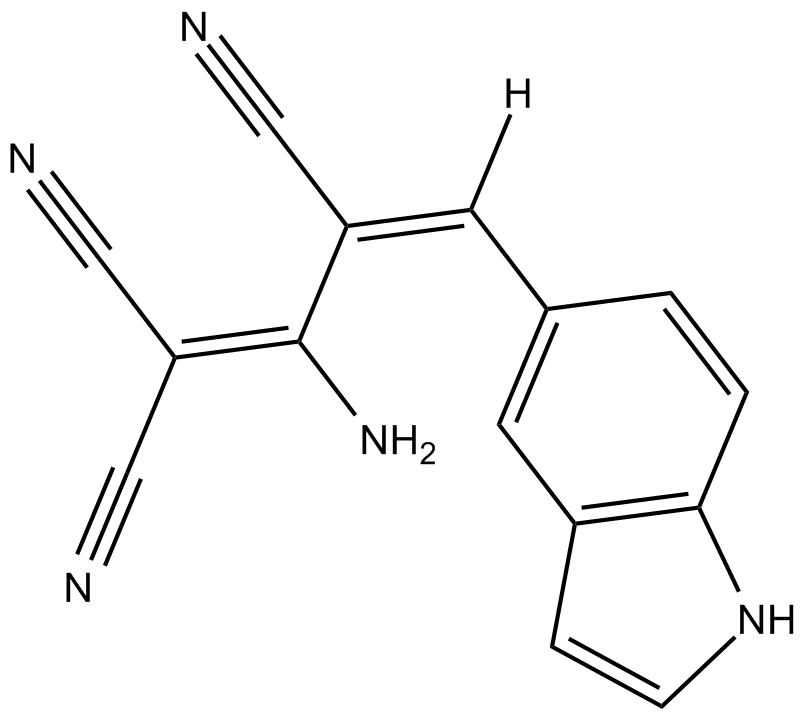
-
GC13854
AG-490 (Tyrphostin B42)
Tyrphostin AG-490
AG-490 (Tyrphostin B42) (Tyrphostin AG-490 (Tyrphostin B42)) is a tyrosine kinase inhibitor that inhibits EGFR, Stat-3 and JAK2/3.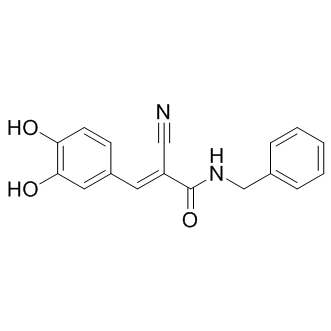
-
GC11845
AG-82
NSC 676484,RG-50875,Tyrphostin 25,Tyrphostin AG-82
AG-82 (AG82) is a specific inhibitor of the EGFR tyrosine kinase.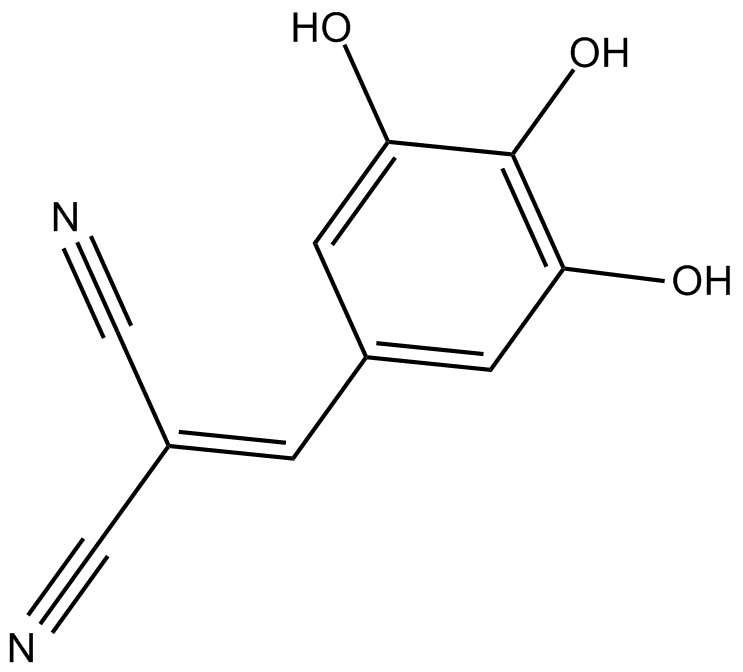
-
GC11737
AG957
NSC 654705,Tyrphostin AG957
a tyrphostin that targets transforming Bcr-Abl fusion proteins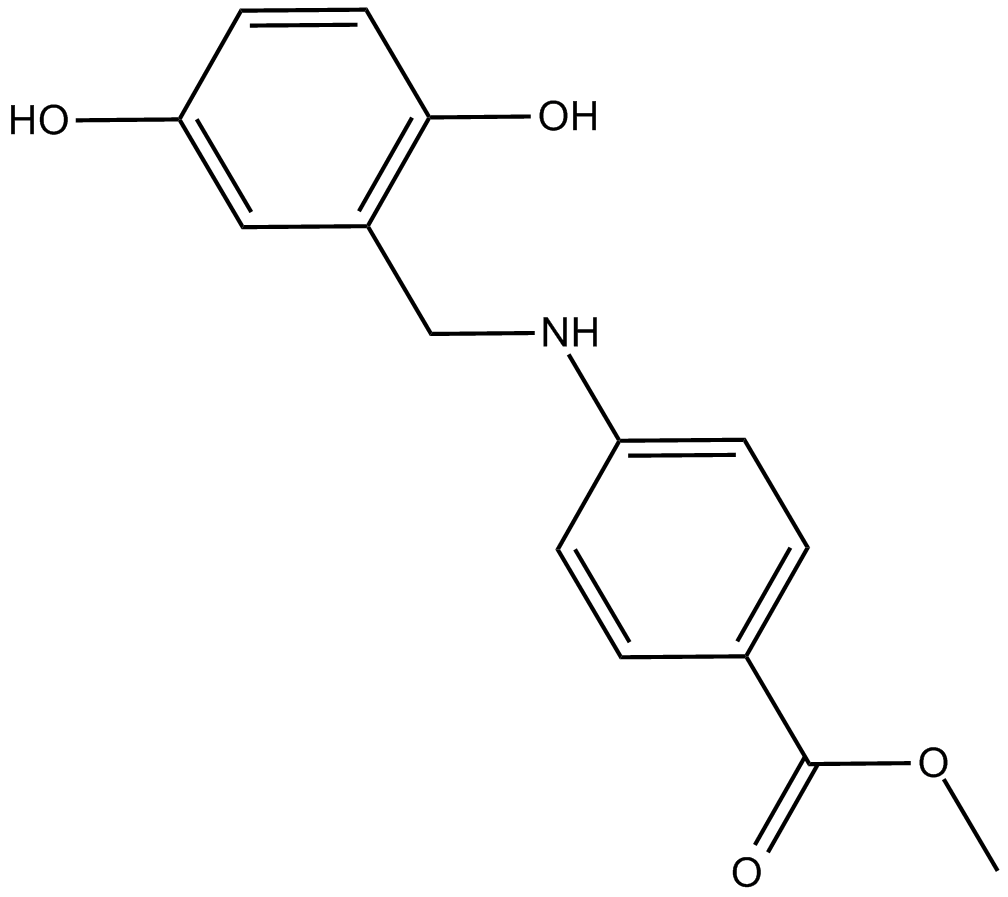
-
GC31371
AGL-2263
An inhibitor of IGF-1R
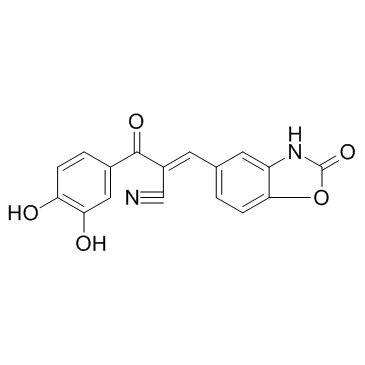
-
GC16228
AIM-100
An ACK1/TNK2 inhibitor
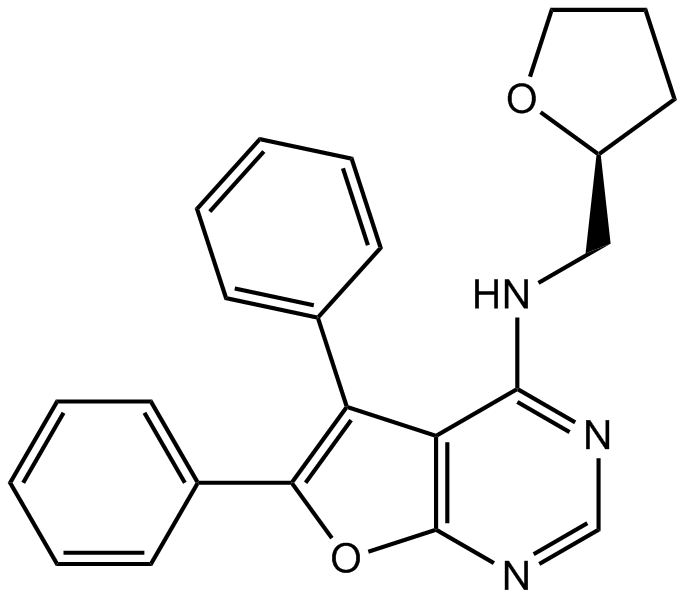
-
GC66451
AKN-028 acetate
AKN-028 acetate, a novel tyrosine kinase (TK) inhibitor, is a potent, orally active FMS-like receptor tyrosine kinase 3 (FLT3) inhibitor with an IC50 value of 6nM. AKN-028 acetate inhibits FLT3 autophosphorylation. AKN-028 acetate induces dose-dependent cytotoxic response (mean IC50=1μM). AKN-028 acetate induces apoptosisby activation of caspase 3. AKN-028 acetate can be used in research of acute myeloid leukemia (AML).
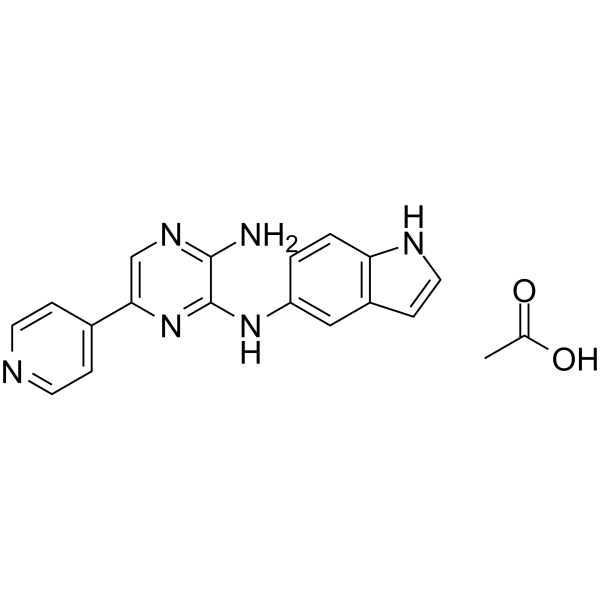
-
GC35280
Alectinib Hydrochloride
Alectinib Hydrochloride (CH5424802 Hydrochloride; RO5424802 Hydrochloride; AF-802 Hydrochloride) is a potent, selective, and orally available ALK inhibitor with an IC50 of 1.9 nM and a Kd value of 2.4 nM (in an ATP-competitive manner), and also inhibits ALK F1174L and ALK R1275Q with IC50s of 1 nM and 3.5 nM, respectively. Alectinib demonstrates effective central nervous system (CNS) penetration.
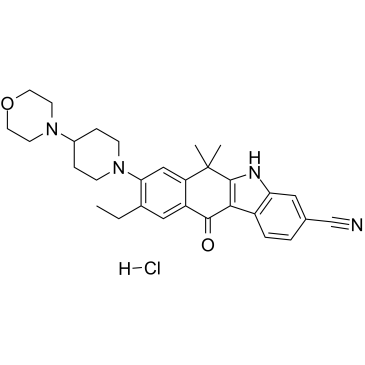
-
GC35287
ALK inhibitor 1
ALK inhibitor 1 (compound 17) is a potent pyrimidin ALK inhibitor. ALK inhibitor 1 is a potent inhibitor of testis-specific serine/threonine kinase 2 (TSSK2; IC50=31 nM) and focal adhesion kinase (FAK; IC50=2 nM).
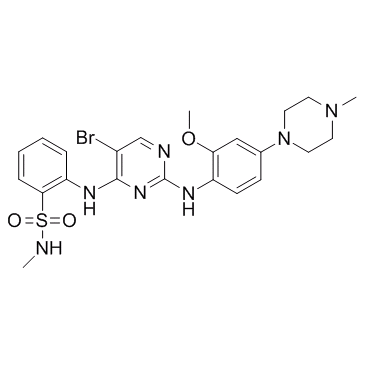
-
GC17376
ALK inhibitor 2
An inhibitor of TSSK2

-
GC63387
ALK kinase inhibitor-1
ALK kinase inhibitor-1 is an anaplastic lymphoma kinase (ALK) inhibitor extracted from patent US20130261106A1 compound I-202.
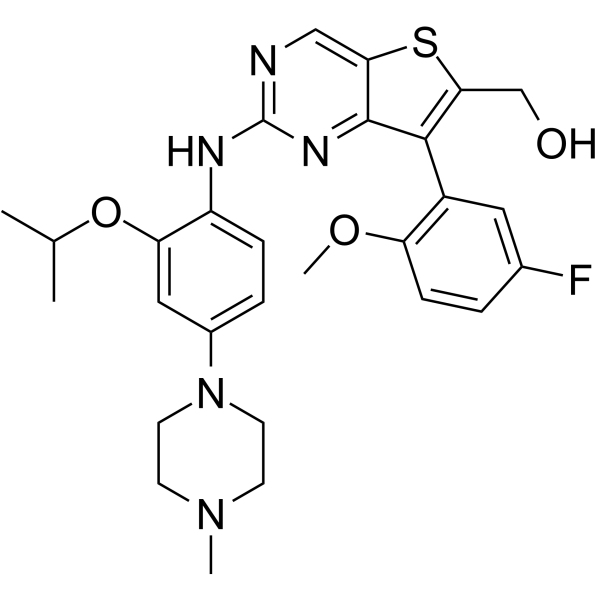
-
GC35289
ALK-IN-5
ALK-IN-5 is a potent, selective, and brain-penetrant inhibitor of anaplastic lymphoma kinase (ALK), with an IC50 of 2.9 nM.
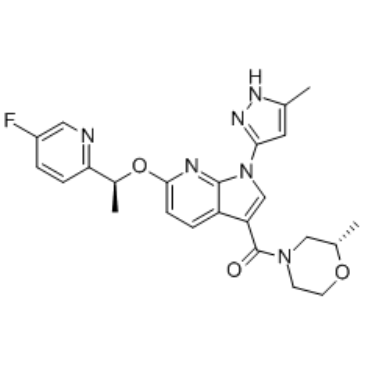
-
GC35290
ALK-IN-6
ALK-IN-6 (compound 11) is an orally bioavailable inhibitor of anaplastic lymphoma kinase (ALK), with IC50 values of 71 nM, 18.72 nM and 36.81 nM for ALK wild, ALK F1196M and ALK F1174L, respectively.
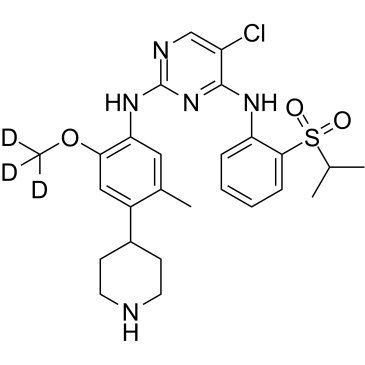
-
GC64398
Almonertinib mesylate
HS-10296 mesylate
Almonertinib (HS-10296) mesylate is an orally available, irreversible, third-generation EGFR tyrosine kinase inhibitor with high selectivity for EGFR-sensitizing and T790M resistance mutations. Almonertinib mesylate shows great inhibitory activity against T790M, T790M/L858R and T790M/Del19 (IC50: 0.37, 0.29 and 0.21 nM, respectively), and is less effective against wild type (3.39 nM). Almonertinib mesylate is used for the research of the non-small cell lung cancer.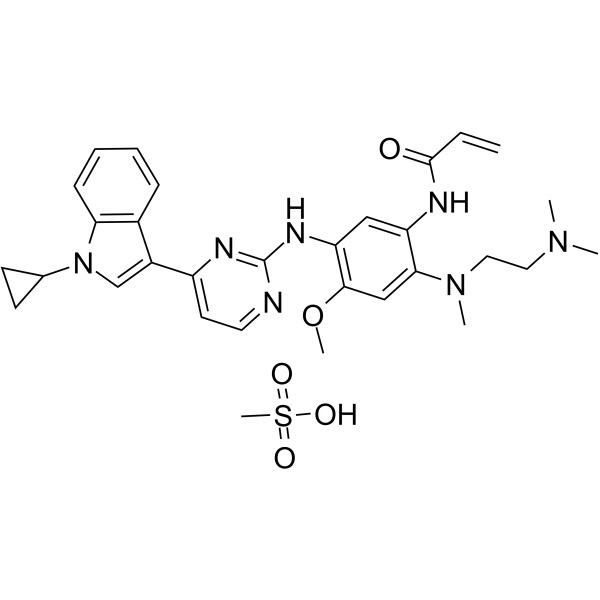
-
GC32127
Alofanib (RPT835)
RPT835
Alofanib (RPT835) (RPT835) is a potent and selective allosteric inhibitor of fibroblast growth factor receptor 2 (FGFR2).
-
GC16604
Altiratinib
DCC-2701
c-MET/TIE-2/VEGFR inhibitor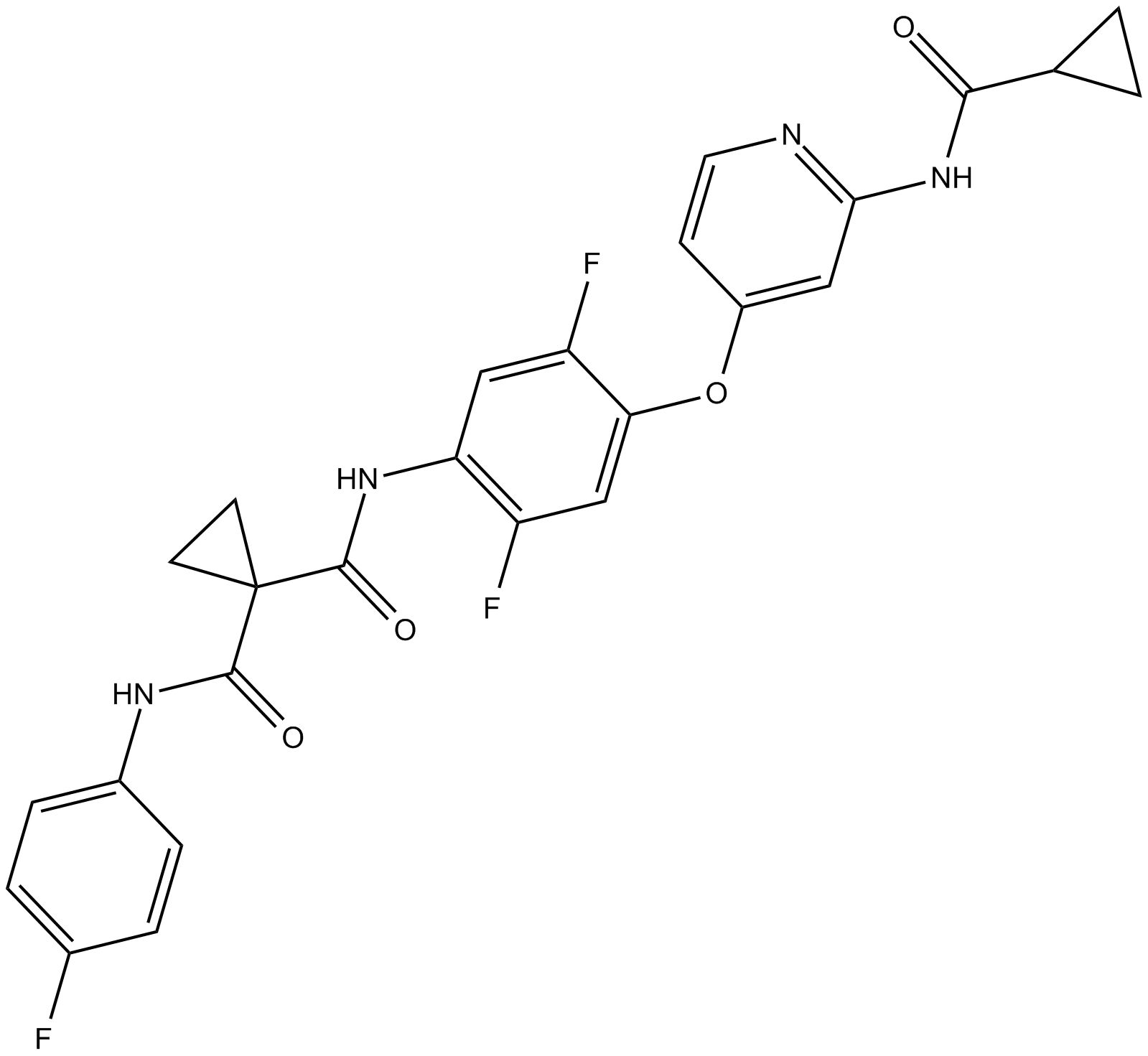
-
GC11134
ALW-II-41-27
Eph receptor tyrosine kinase inhibitor;
ALW-II-41-27 is an Eph family tyrosine kinase inhibitor with an IC50 of 11 nM to inhibit Eph2.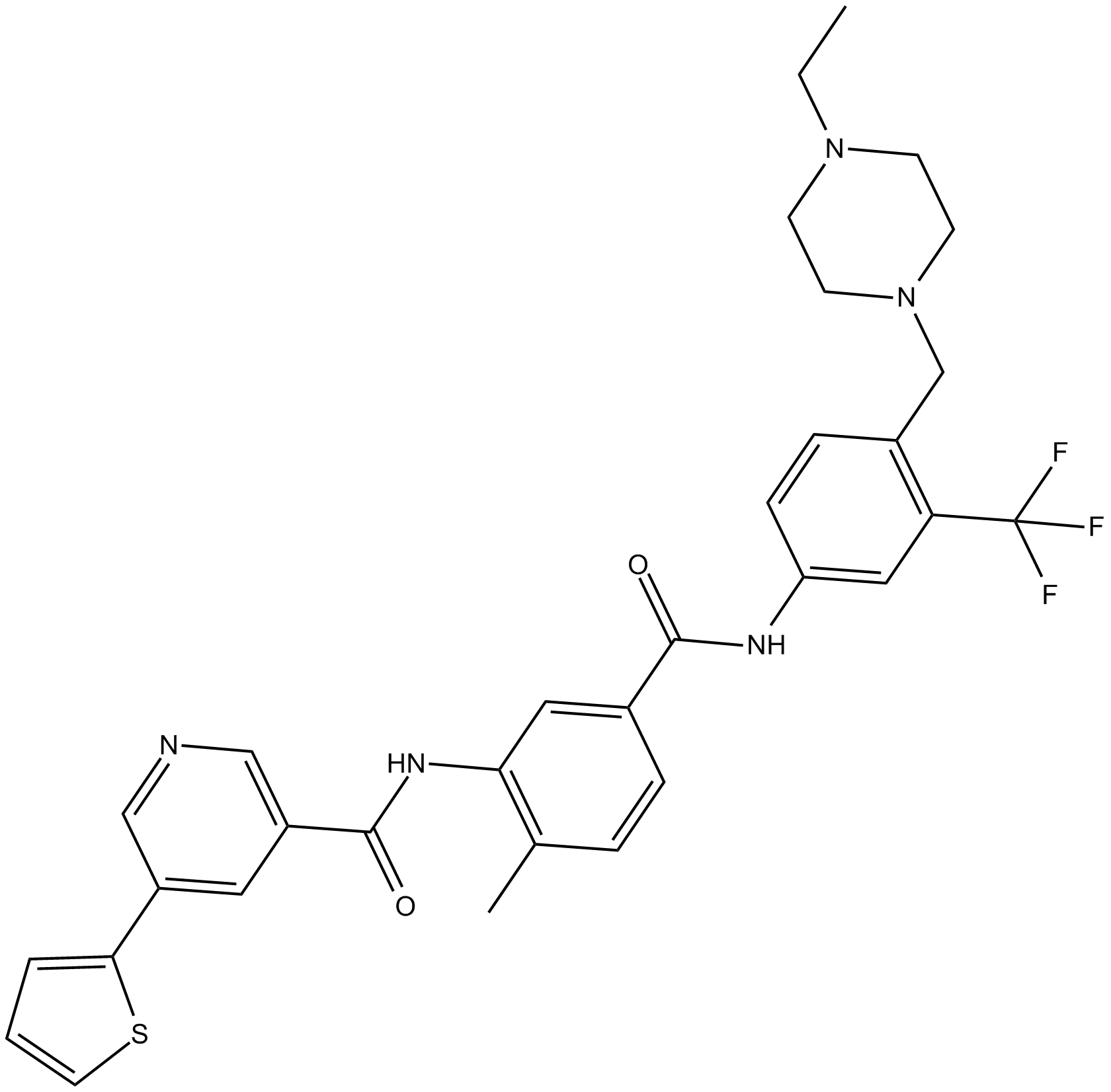
-
GC68647
ALW-II-49-7
ALW-II-49-7 is a selective inhibitor of EphB2 with an intracellular EC50 of 40 nM.
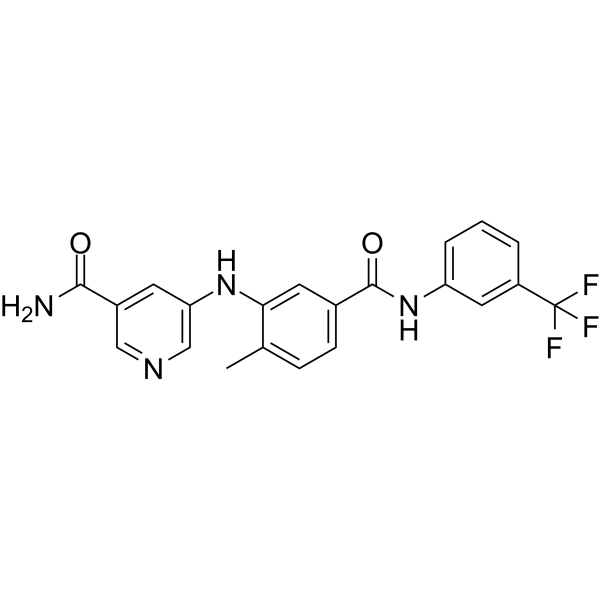
-
GC15655
AMG 337
MET inhibitor
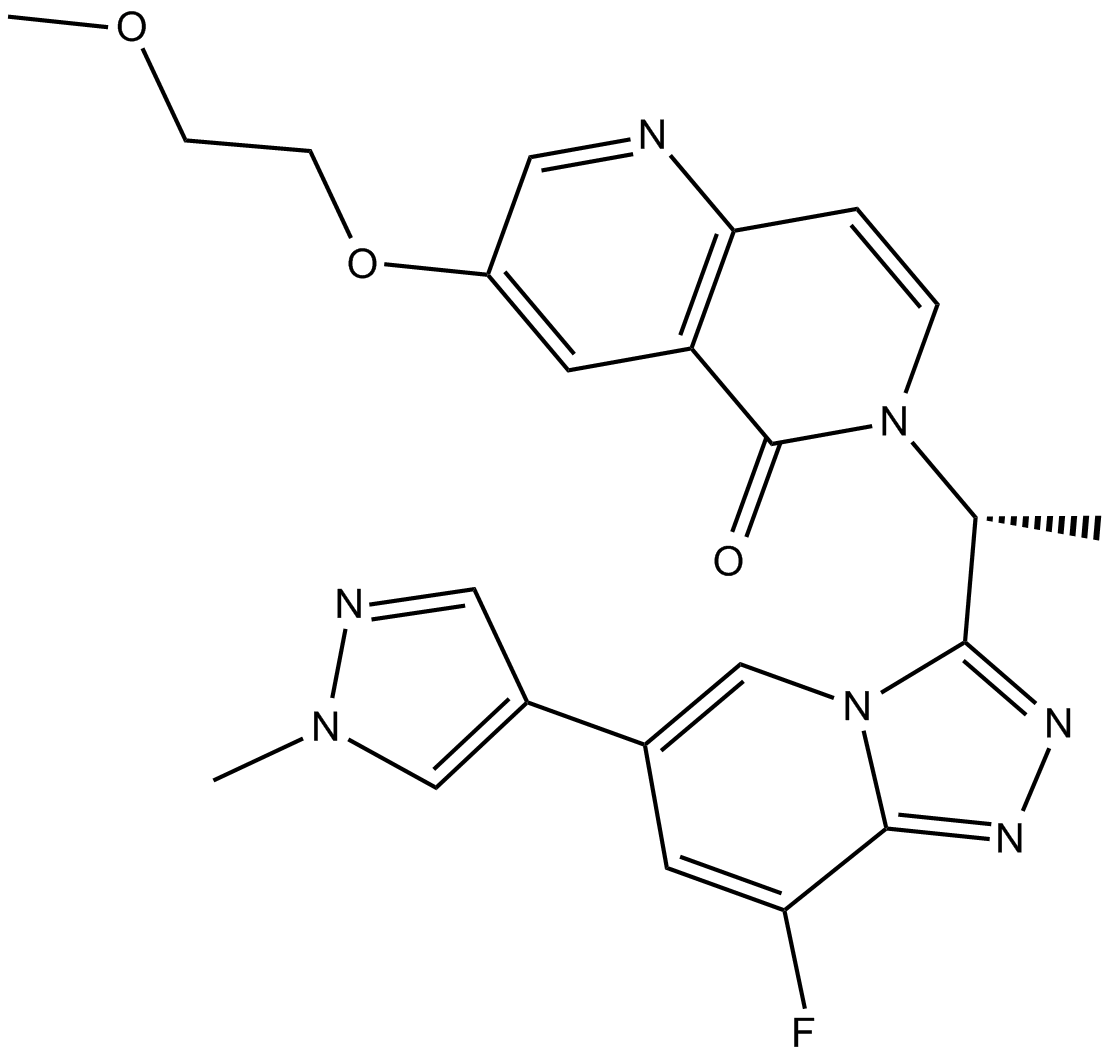
-
GC14974
AMG 925
FLT3/CDK4 inhibitor,potent and selective
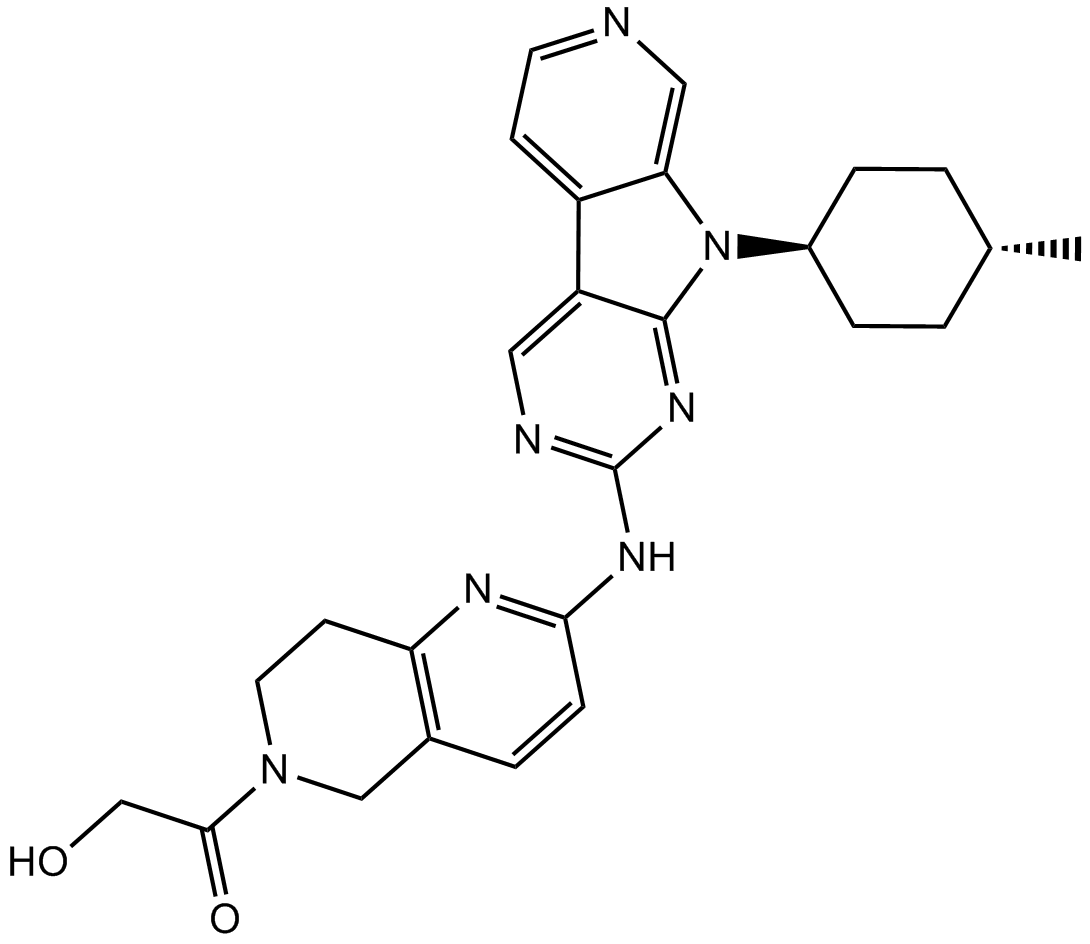
-
GC35315
AMG 925 HCl
AMG 925 HCl is a potent, selective, and orally available FLT3/CDK4 dual inhibitor with IC50s of 2±1 nM and 3±1 nM, respectively.
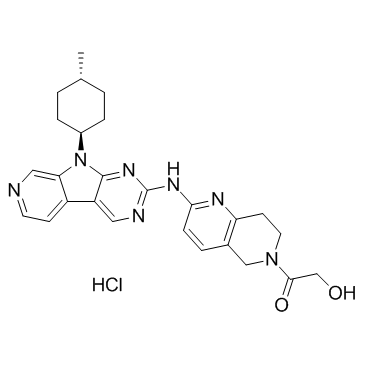
-
GC12600
AMG-208
C-Met inhibitor,potent and highly selective
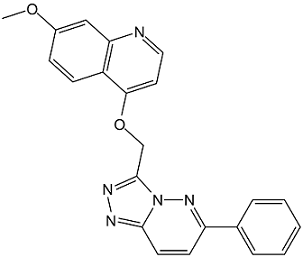
-
GC11481
AMG-458
AMG 458; AMG458
Potent c-Met inhibitor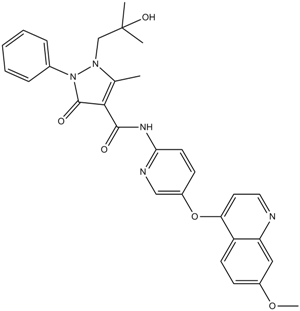
-
GC17669
AMG-47A
destabilizer of the KRAS oncoprotein
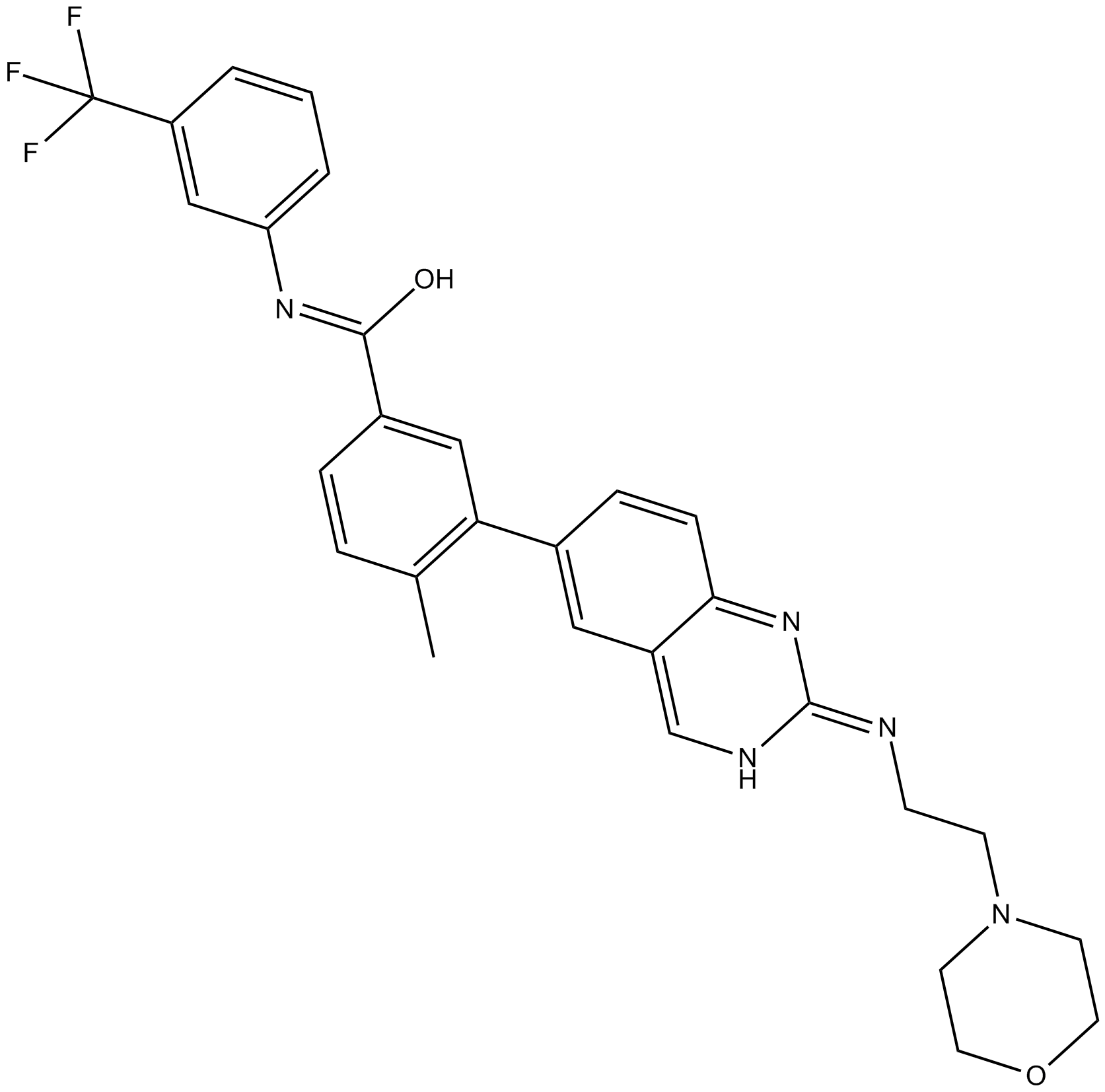
-
GC67749
Amivantamab
JNJ-61186372
Amivantamab (JNJ-61186372) is a human EGFR-MET bispecific antibody with immune anticancer activity



